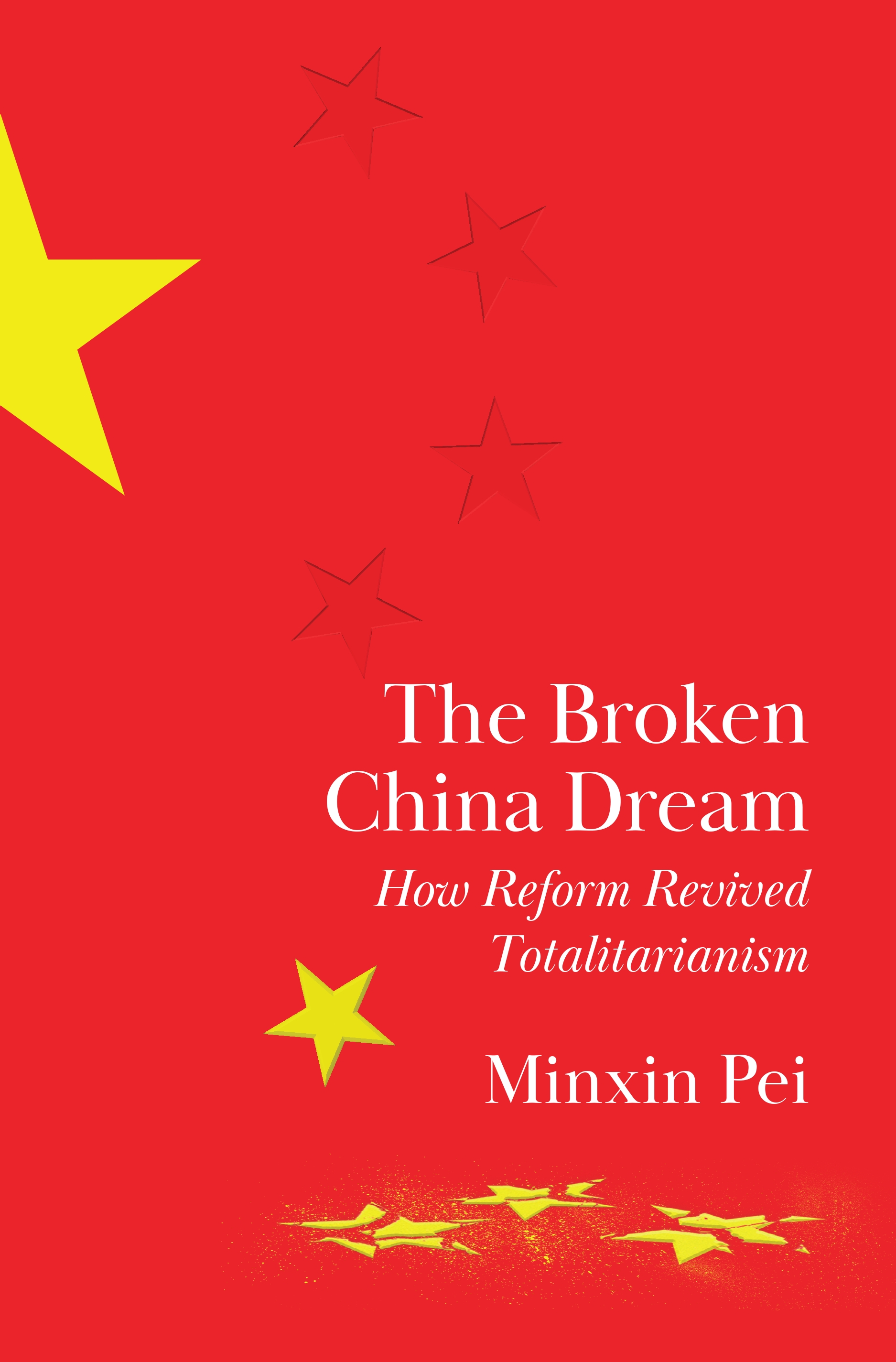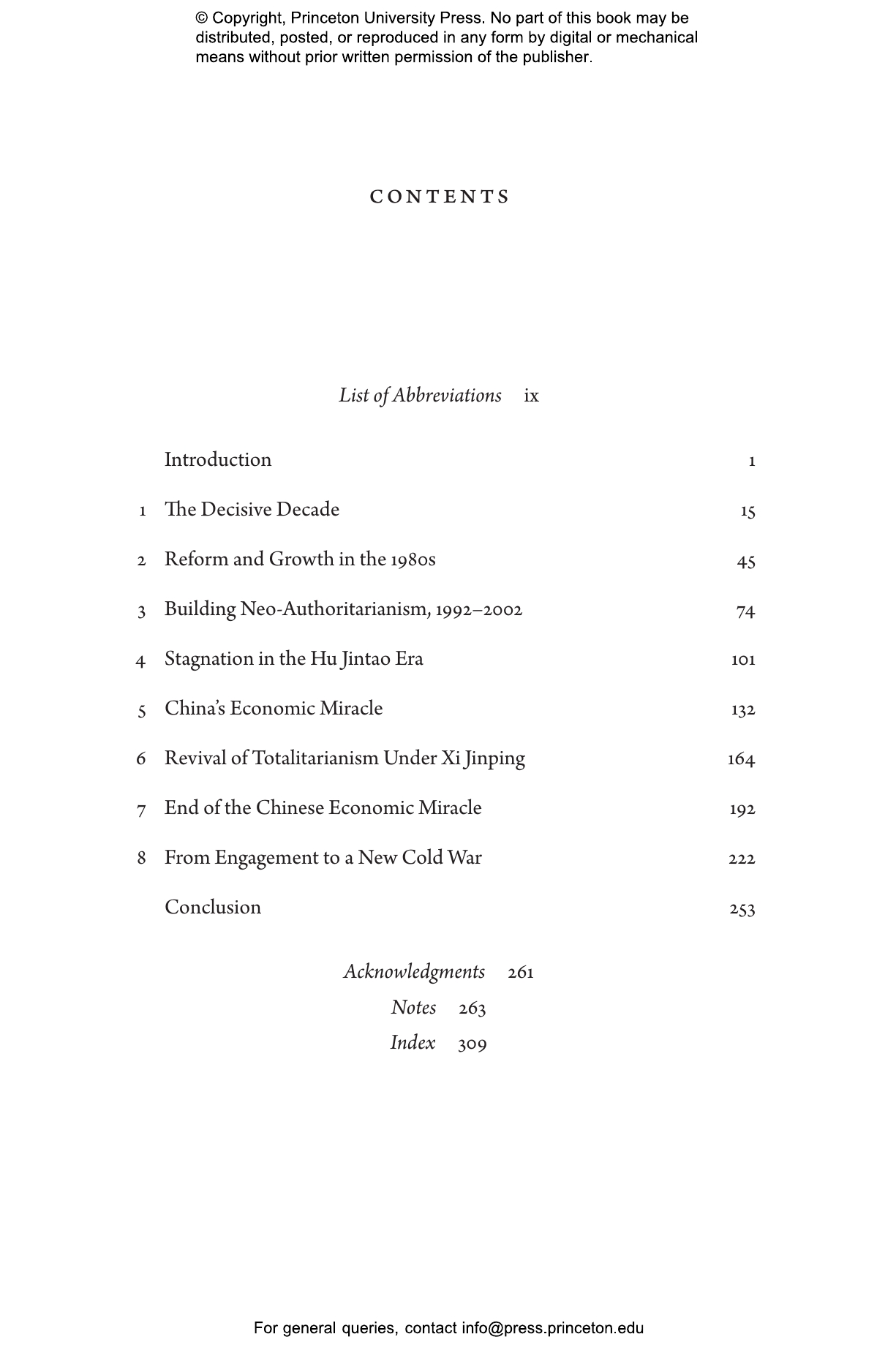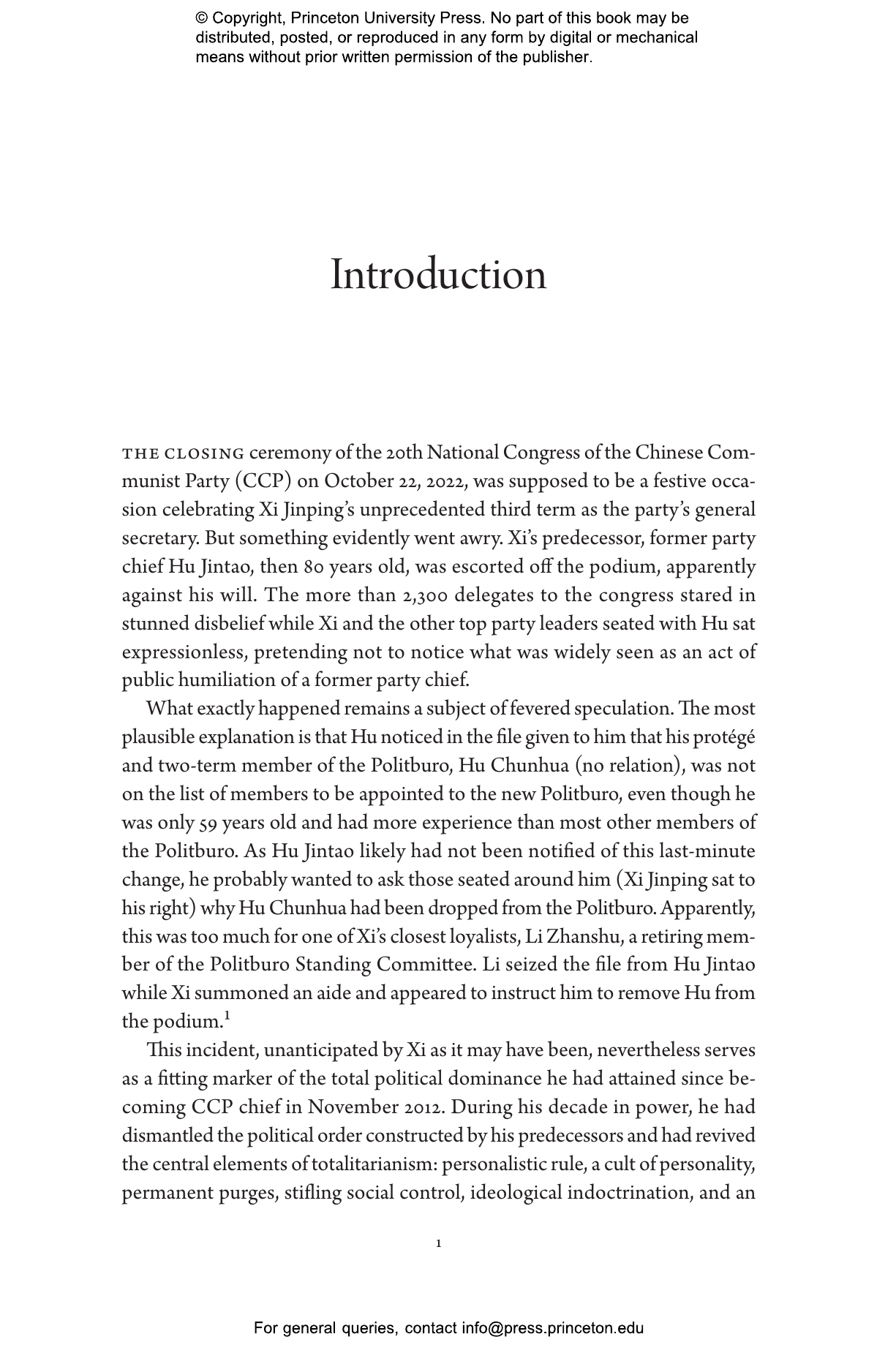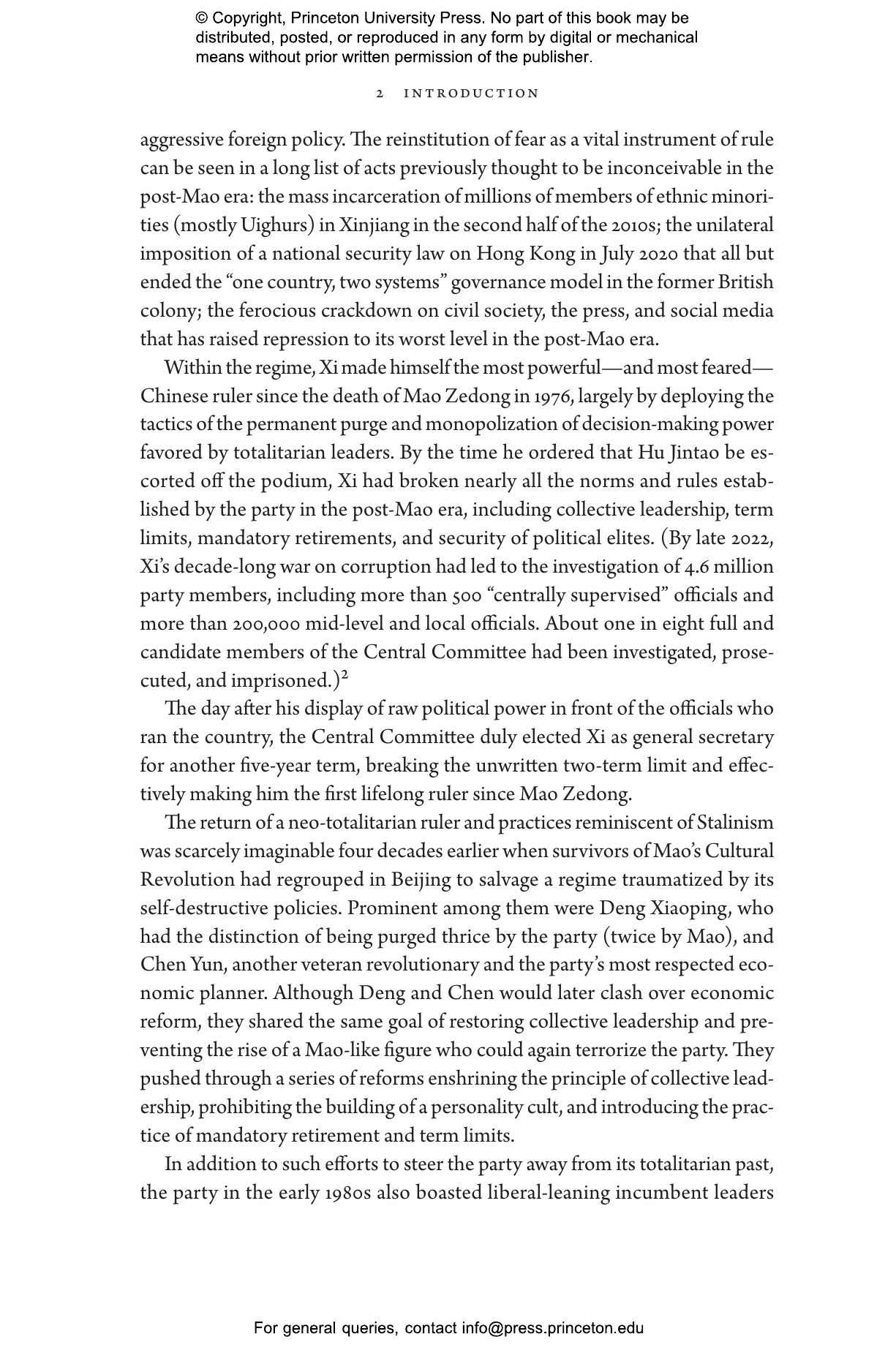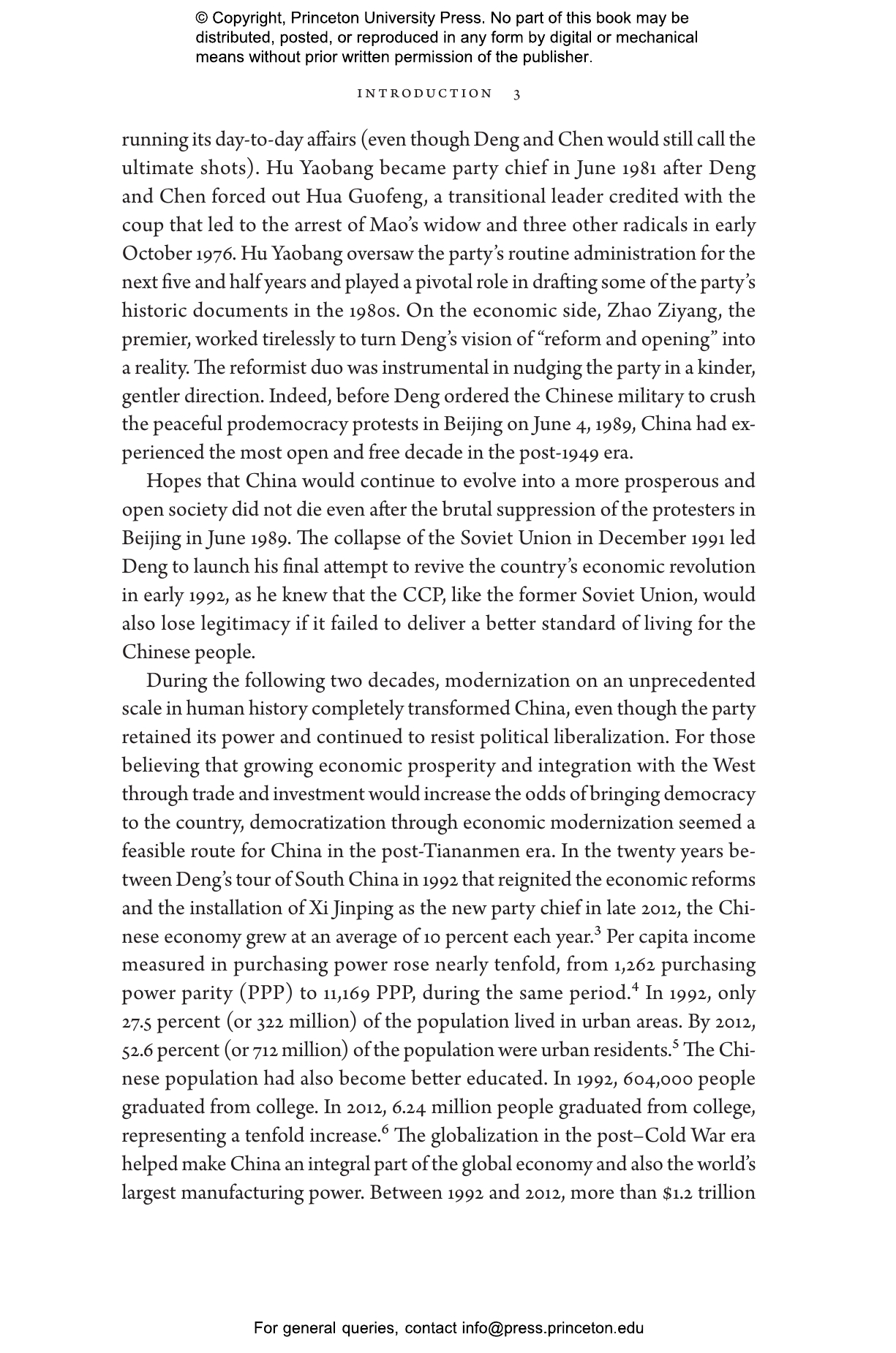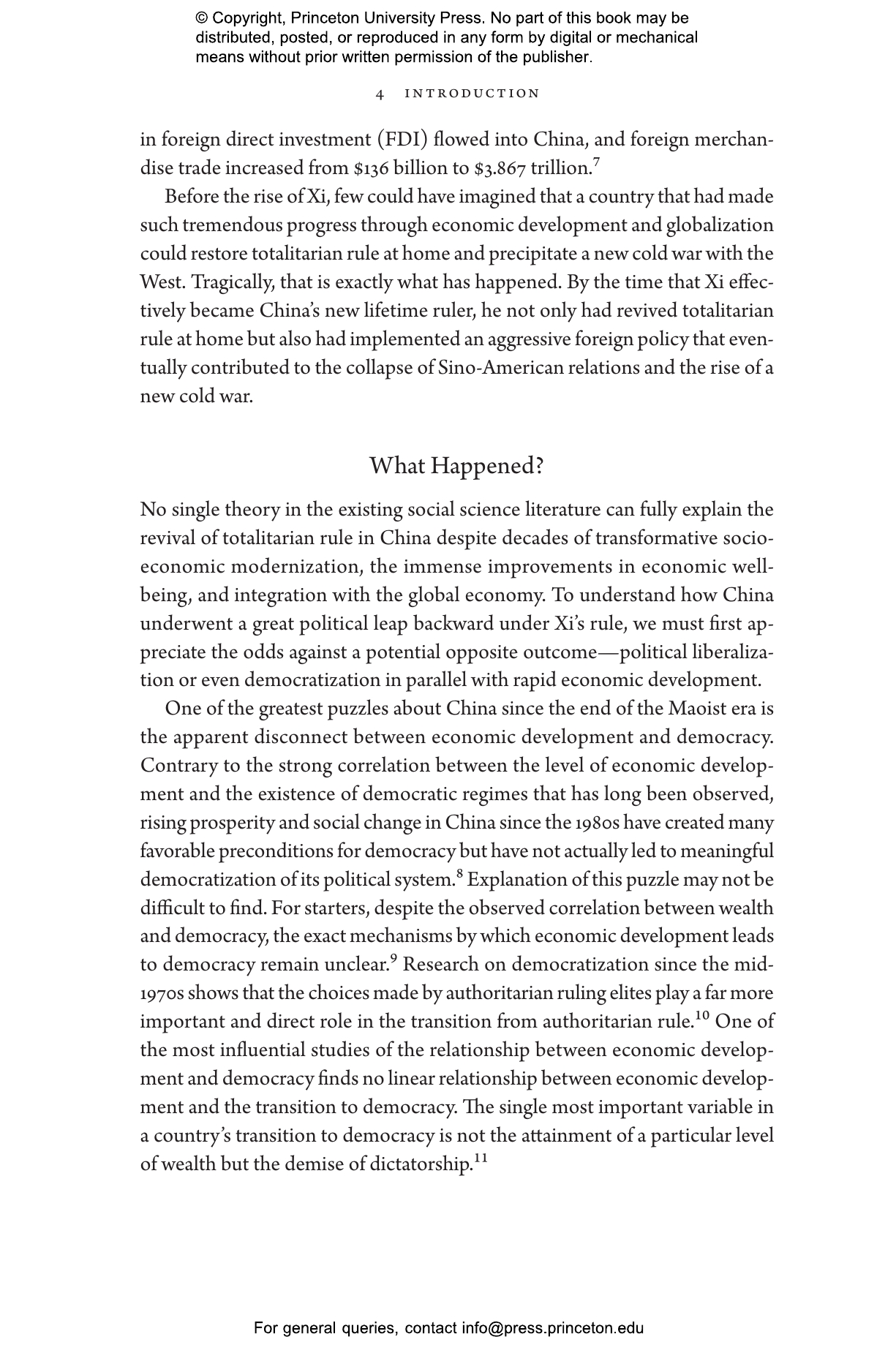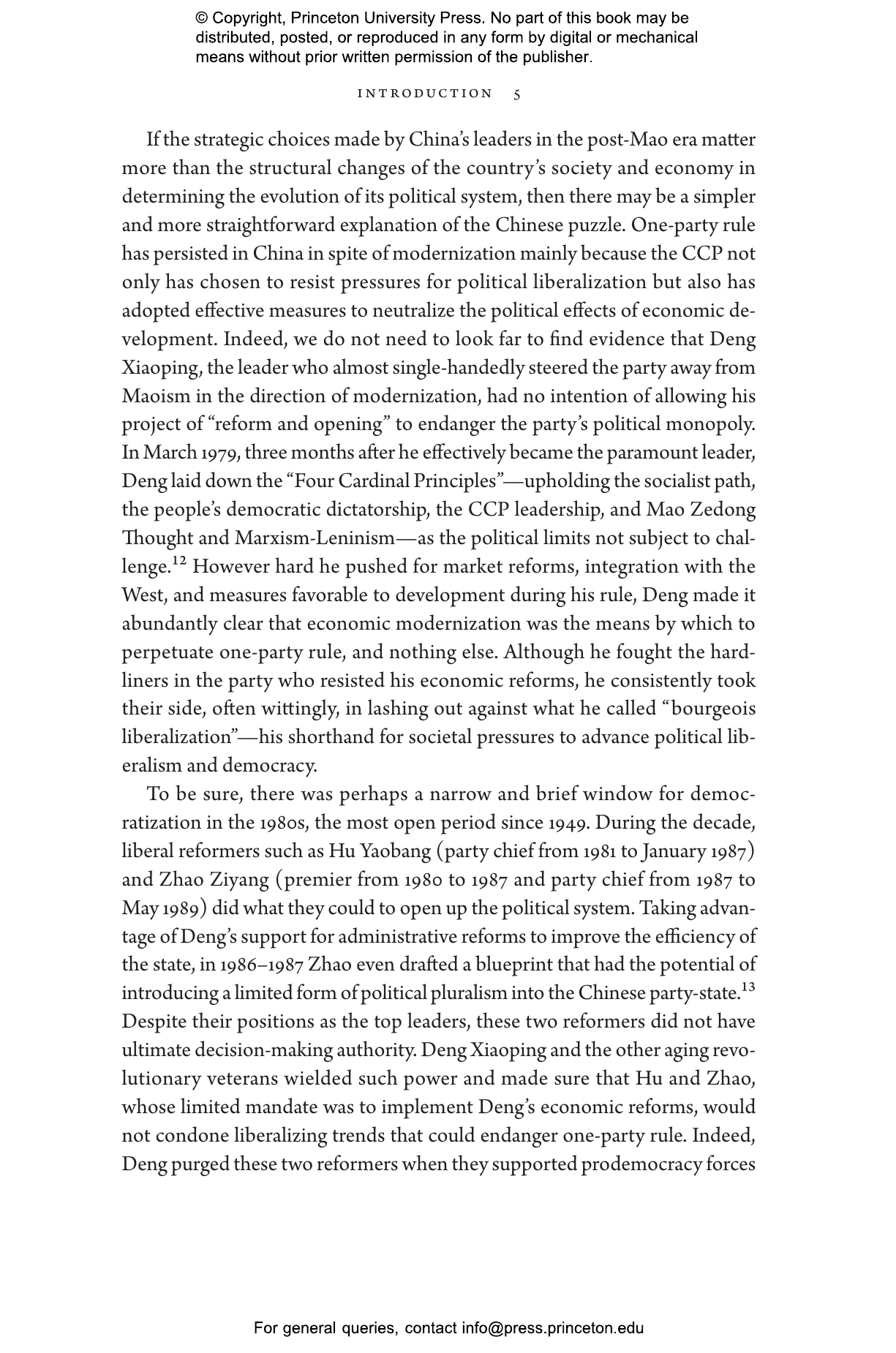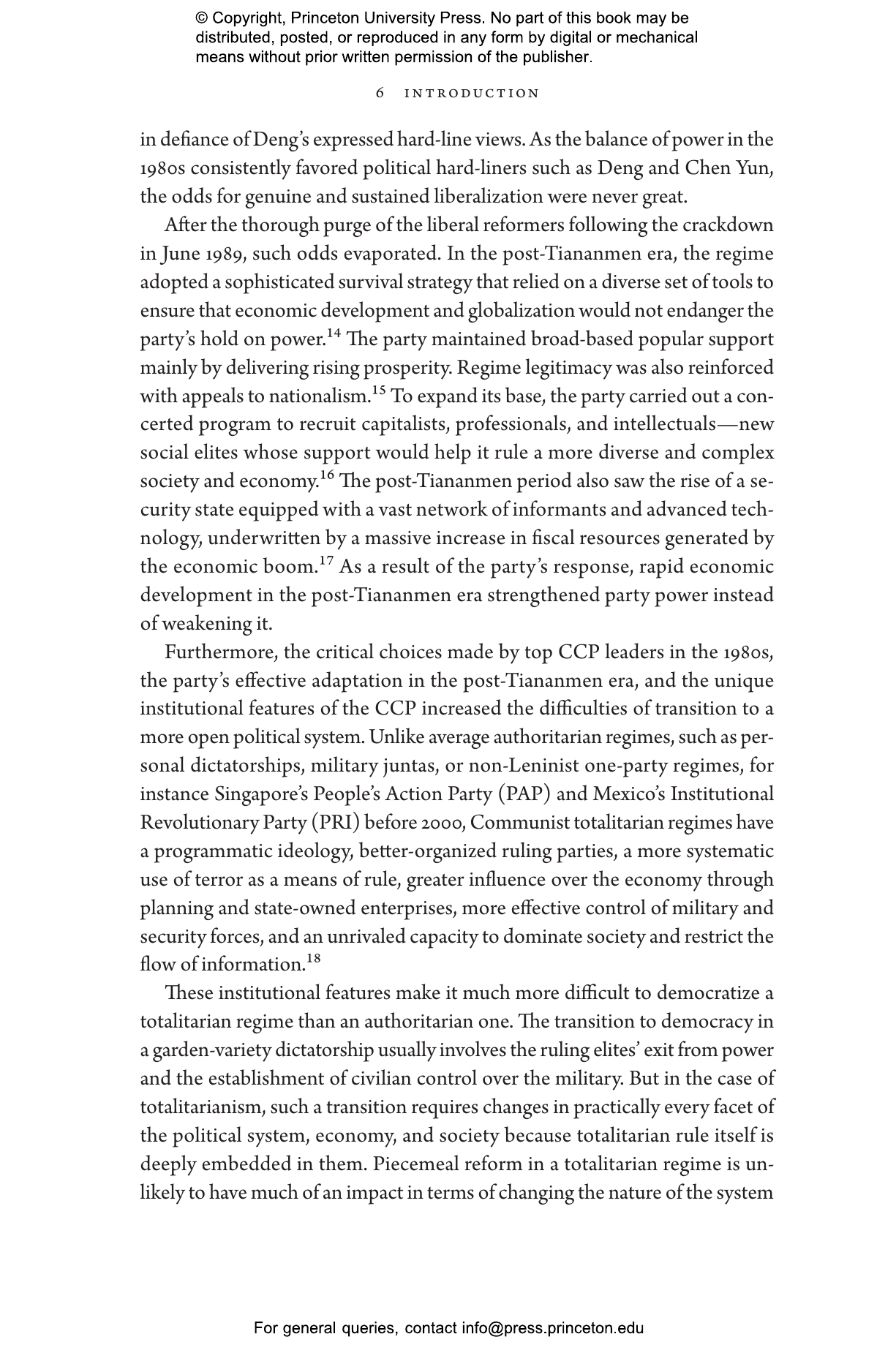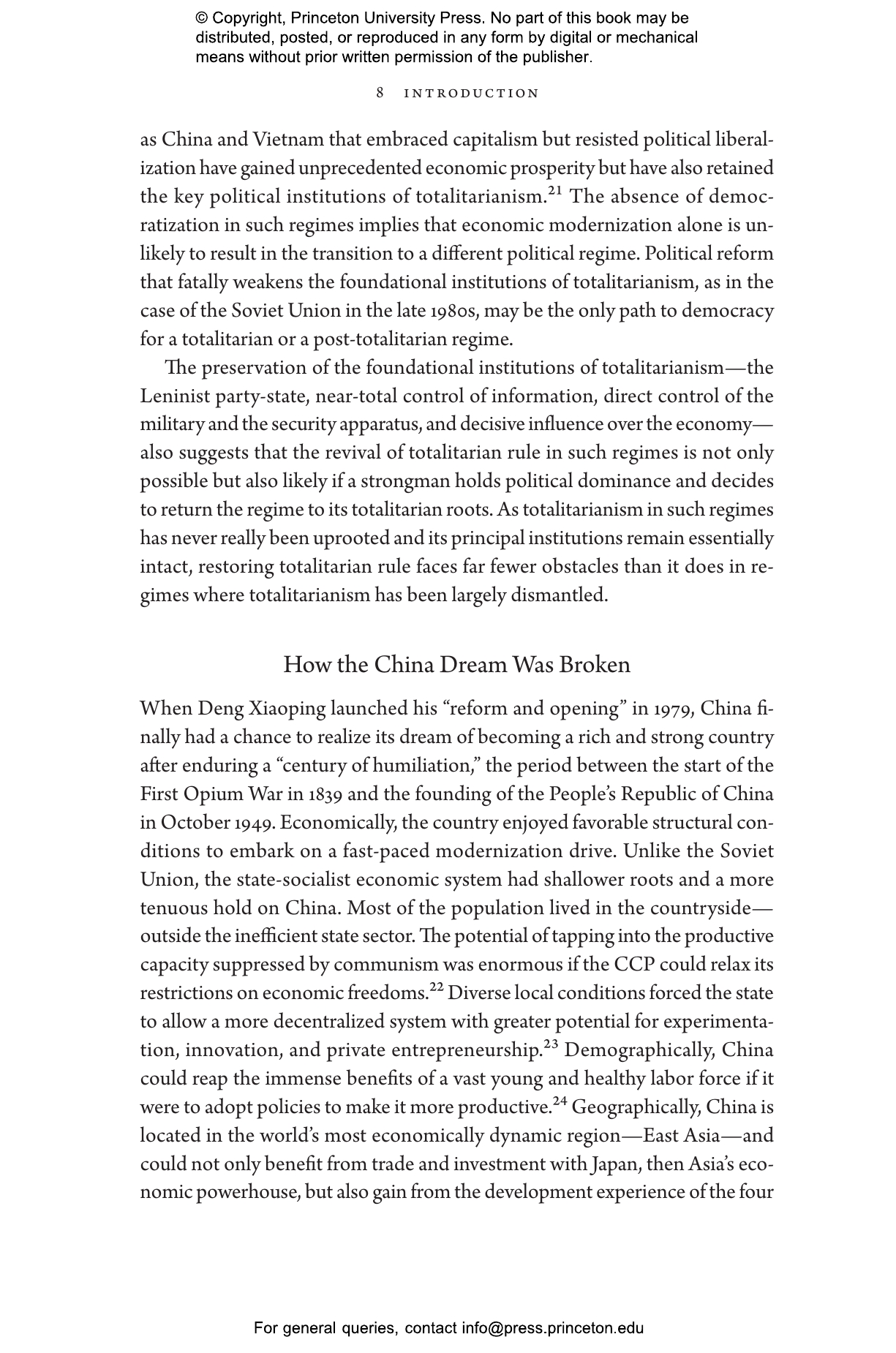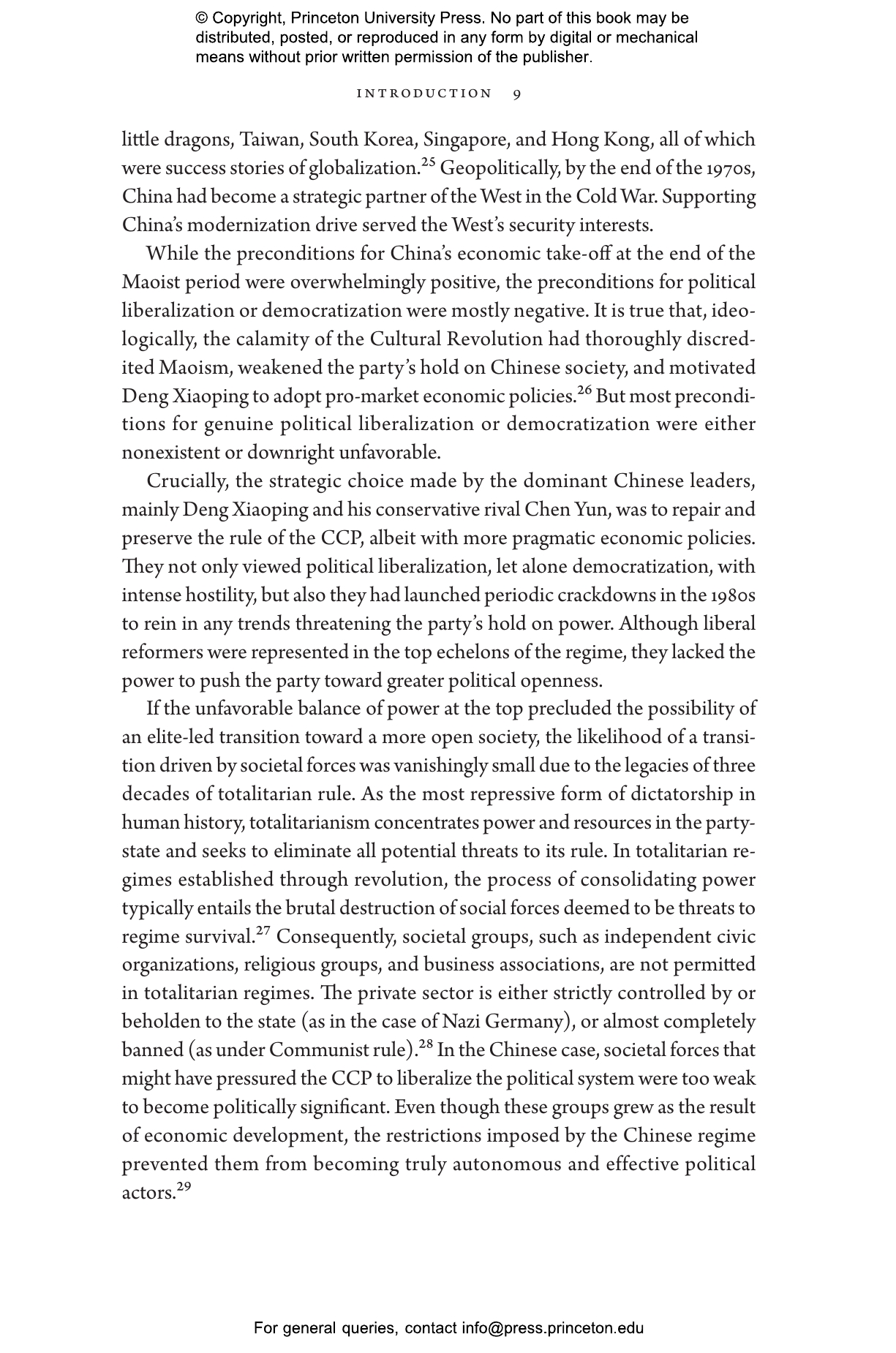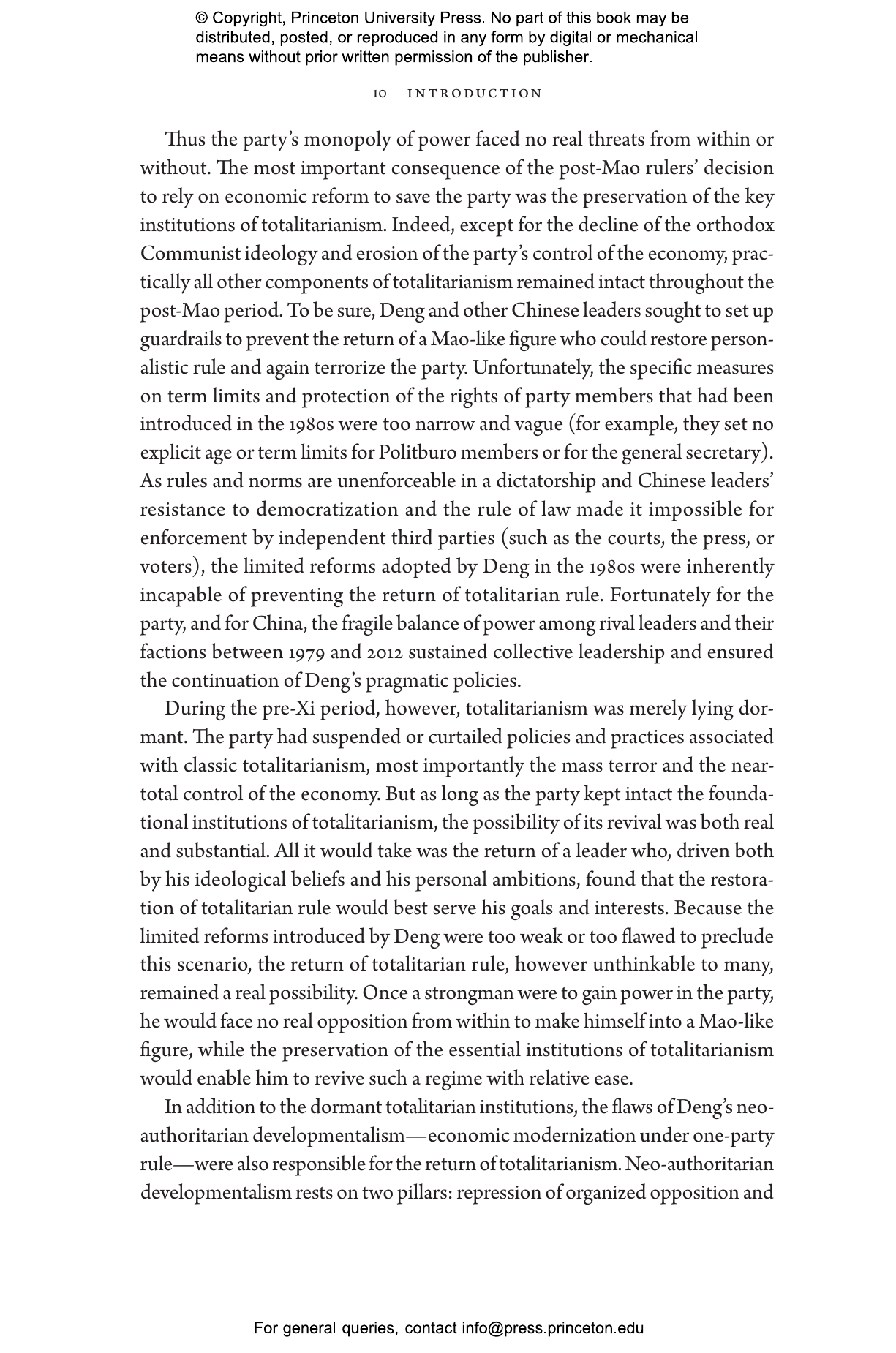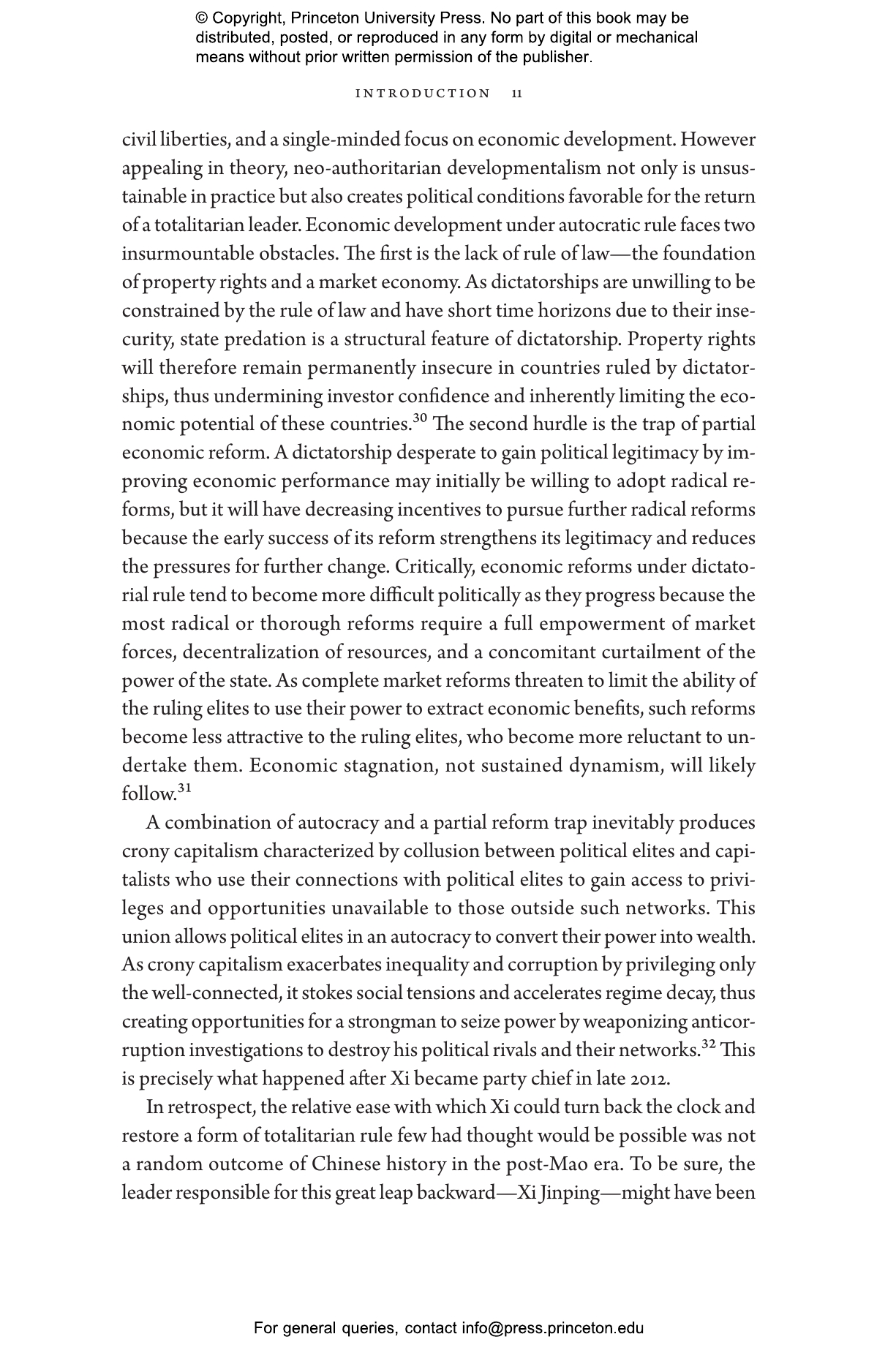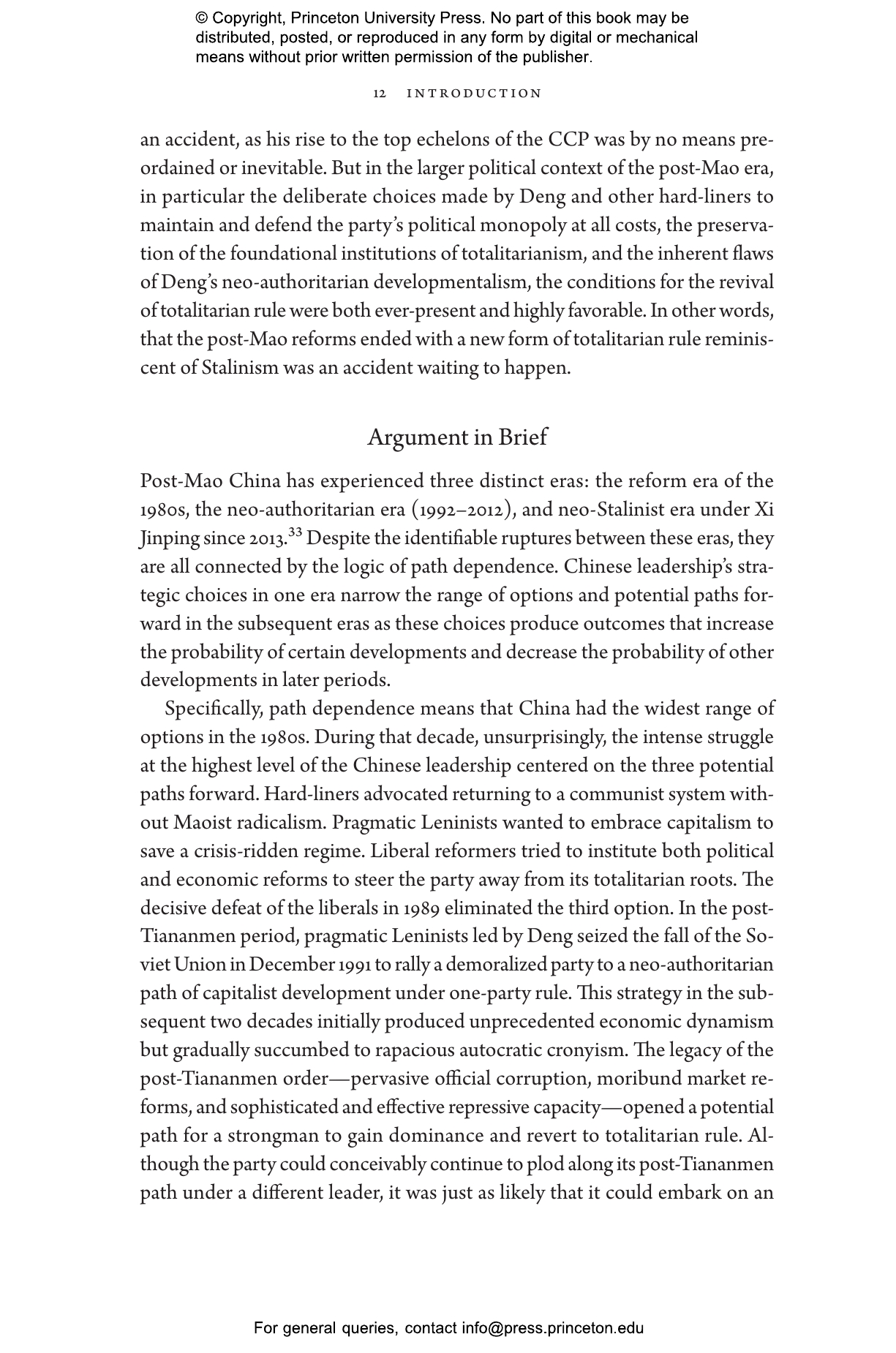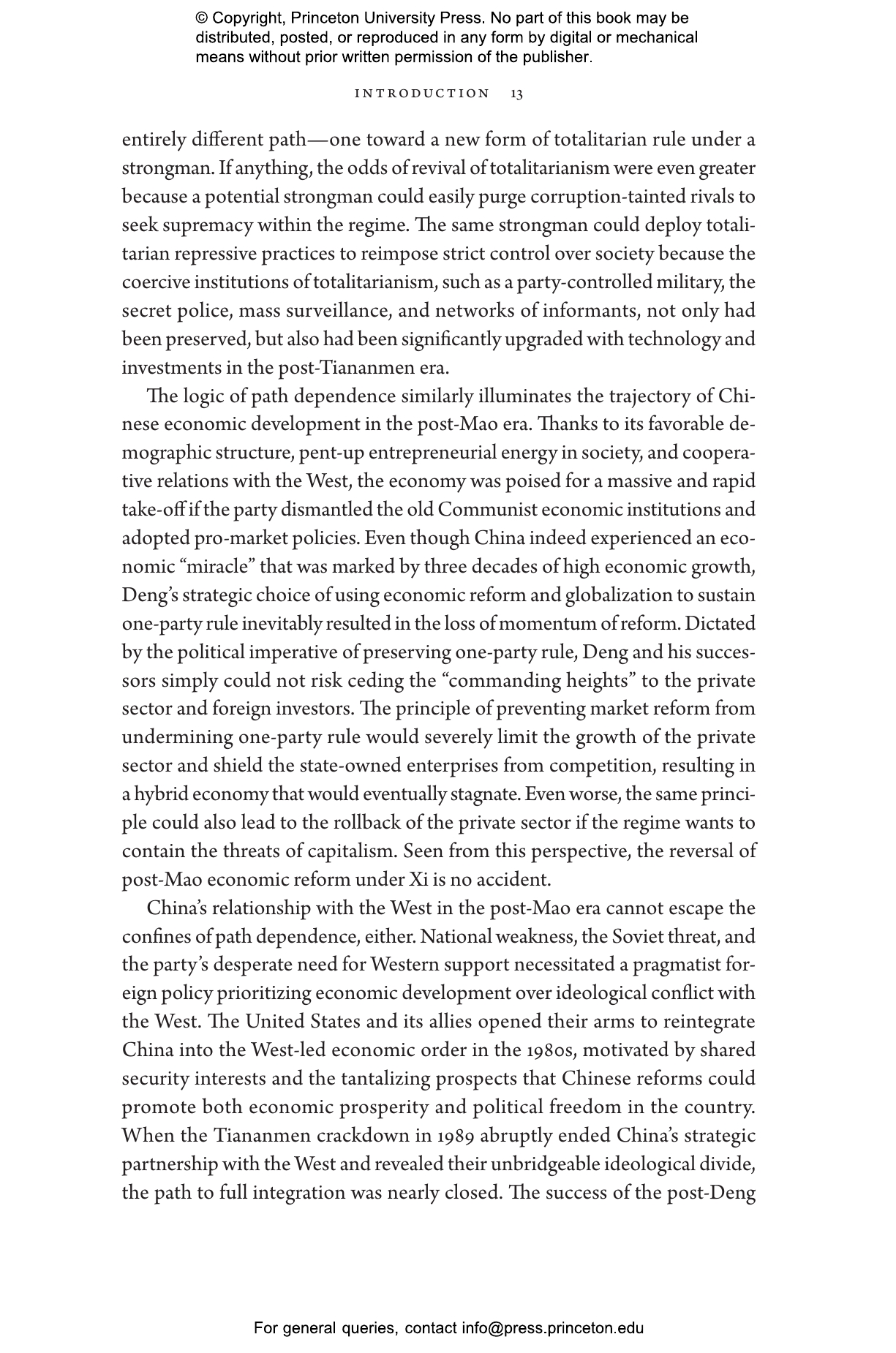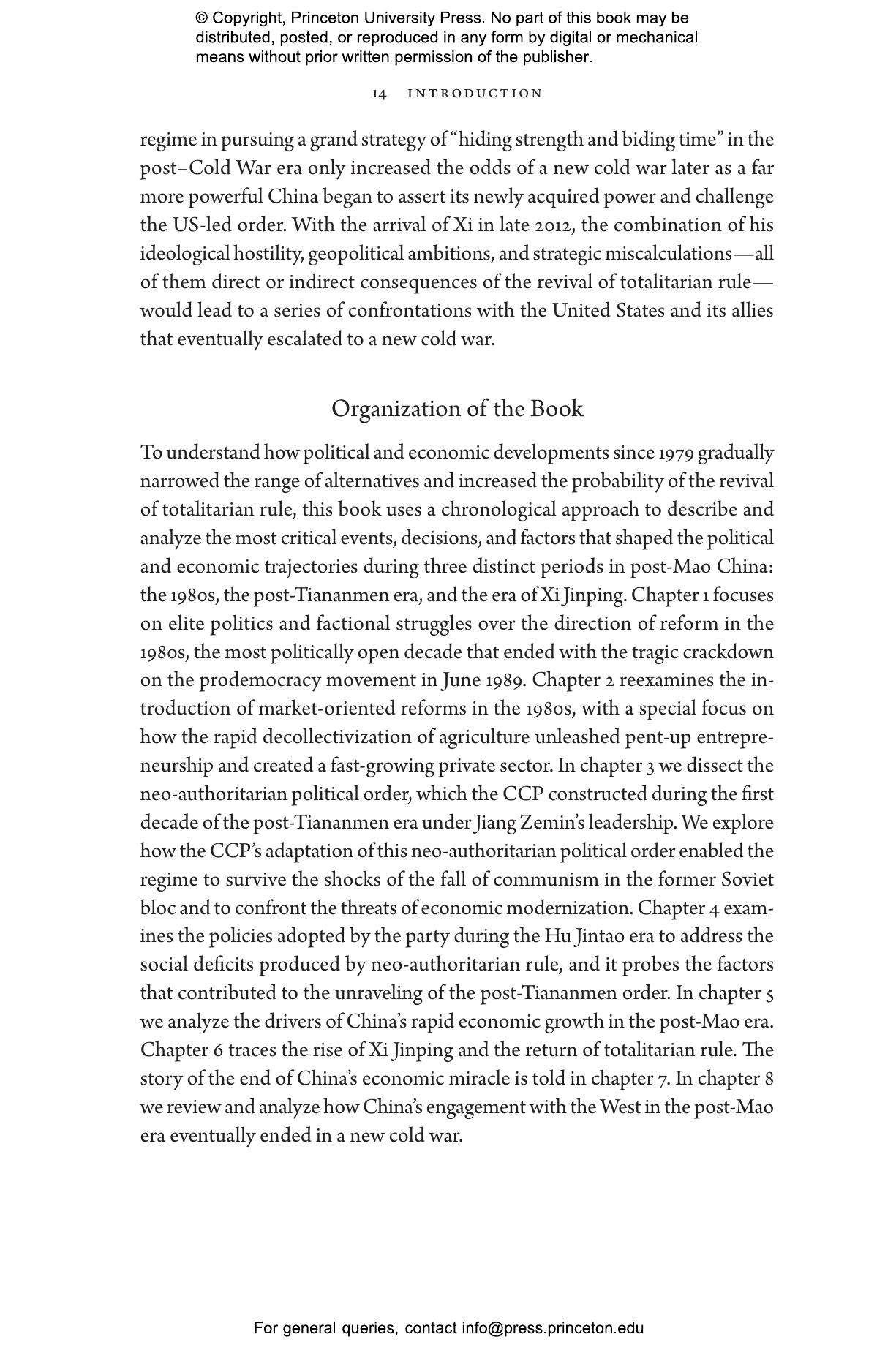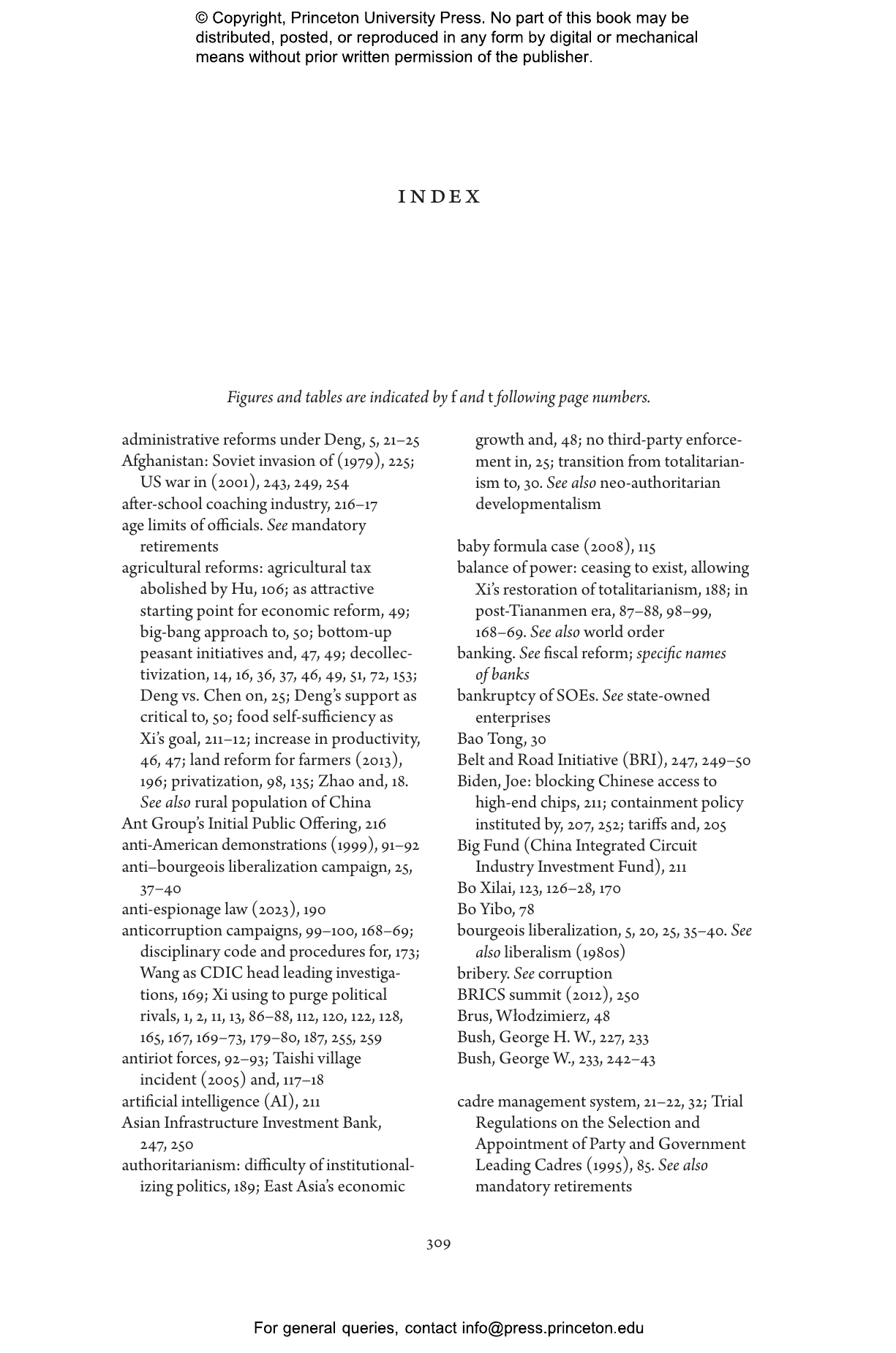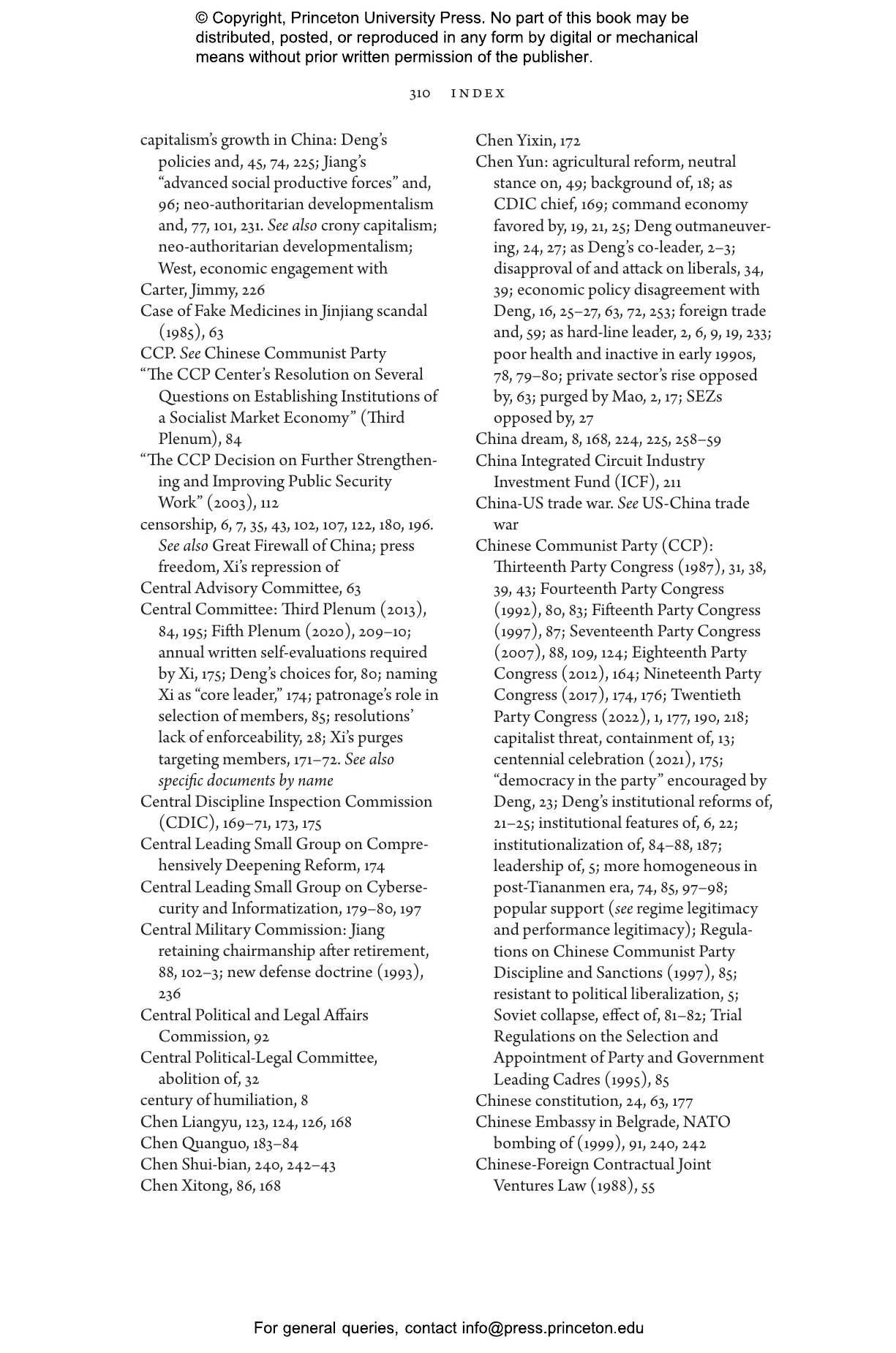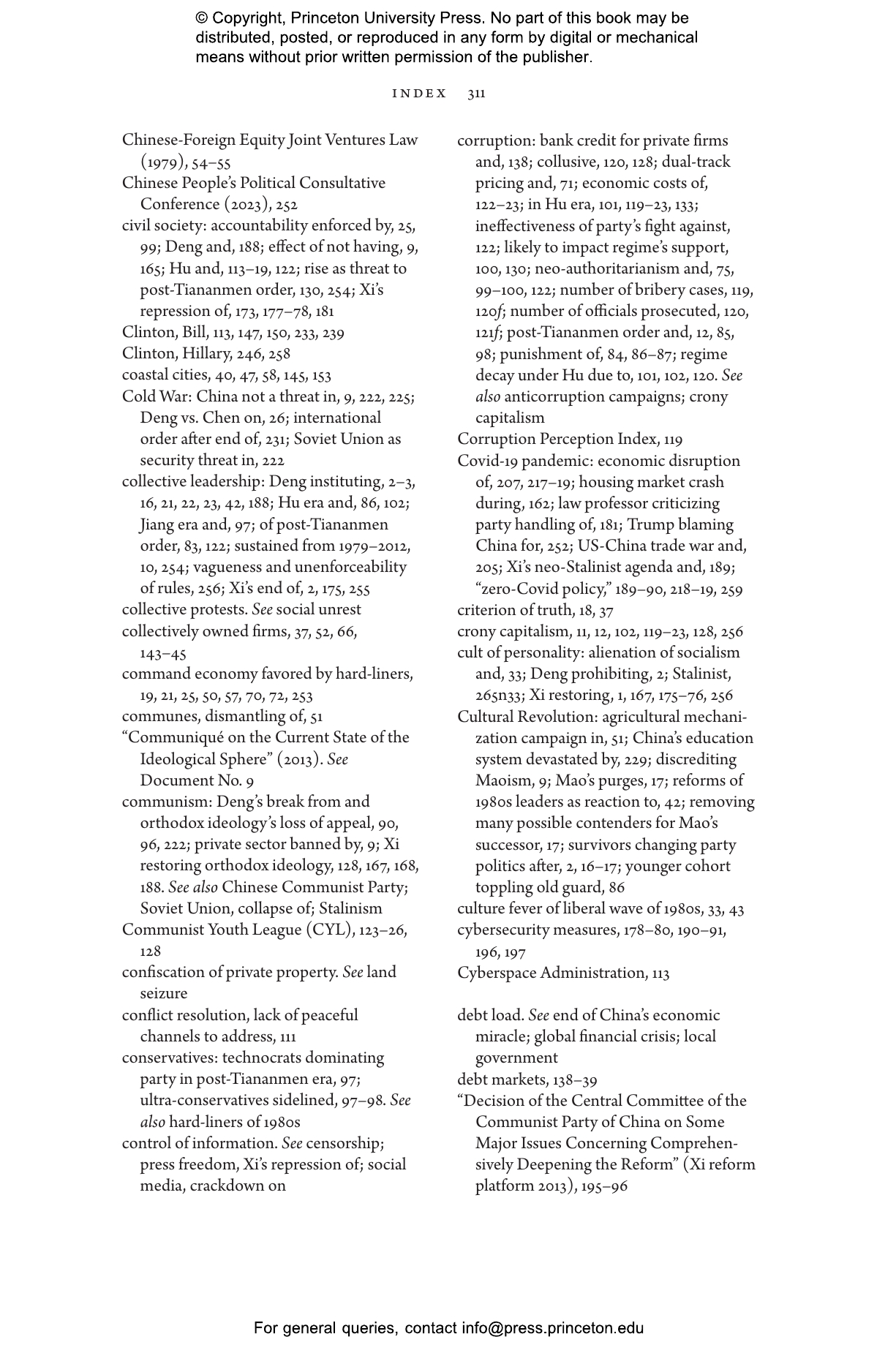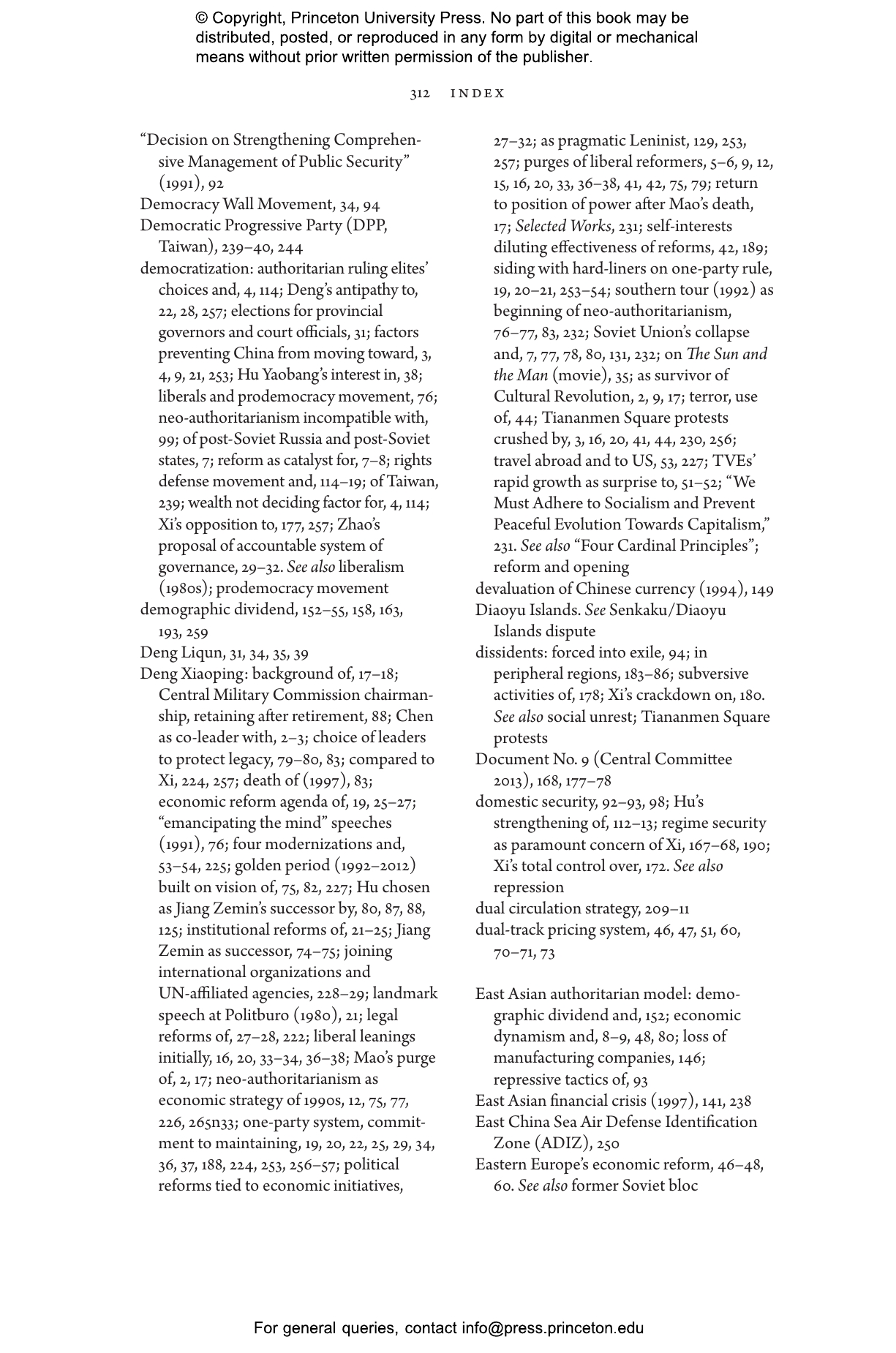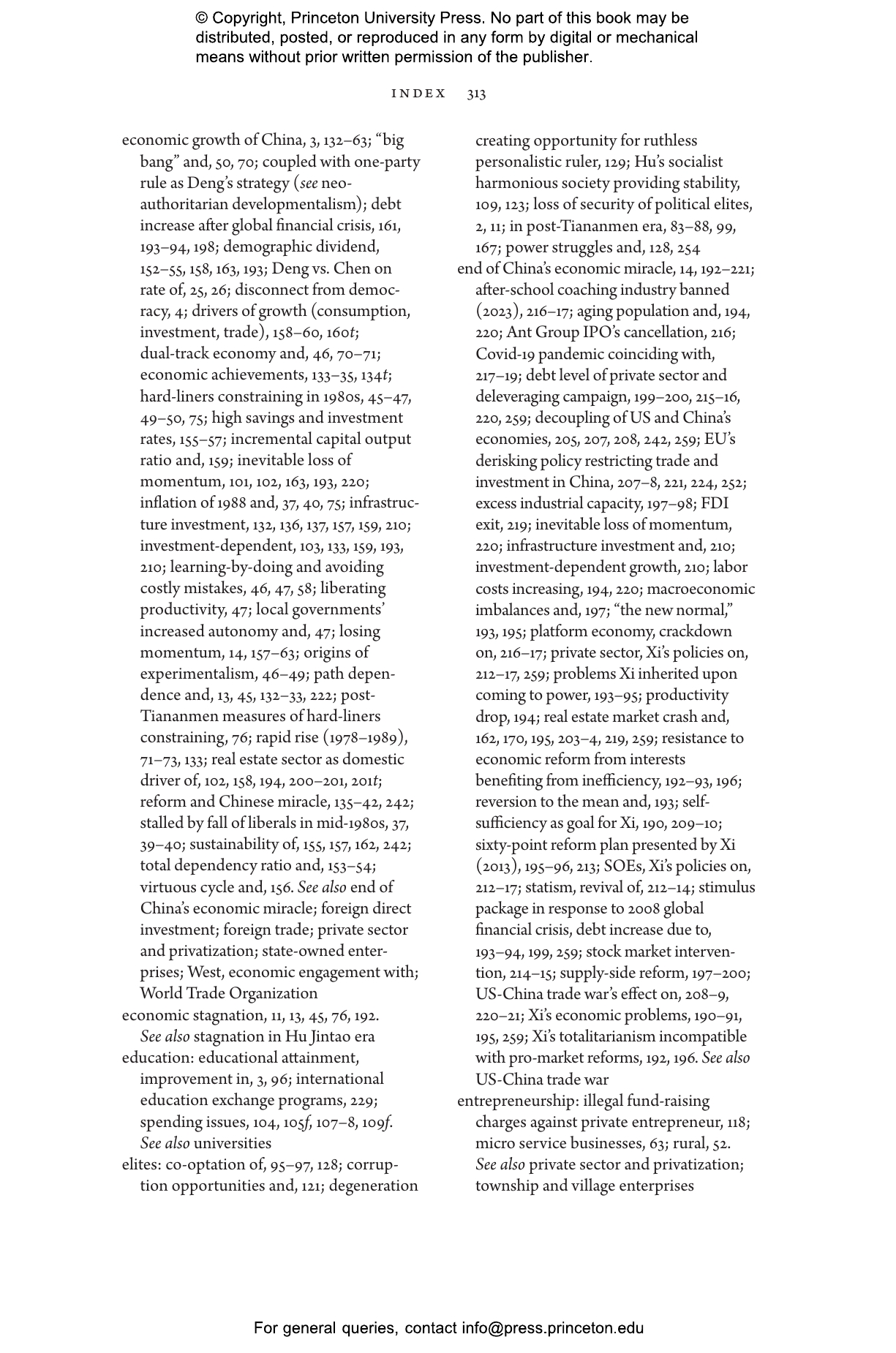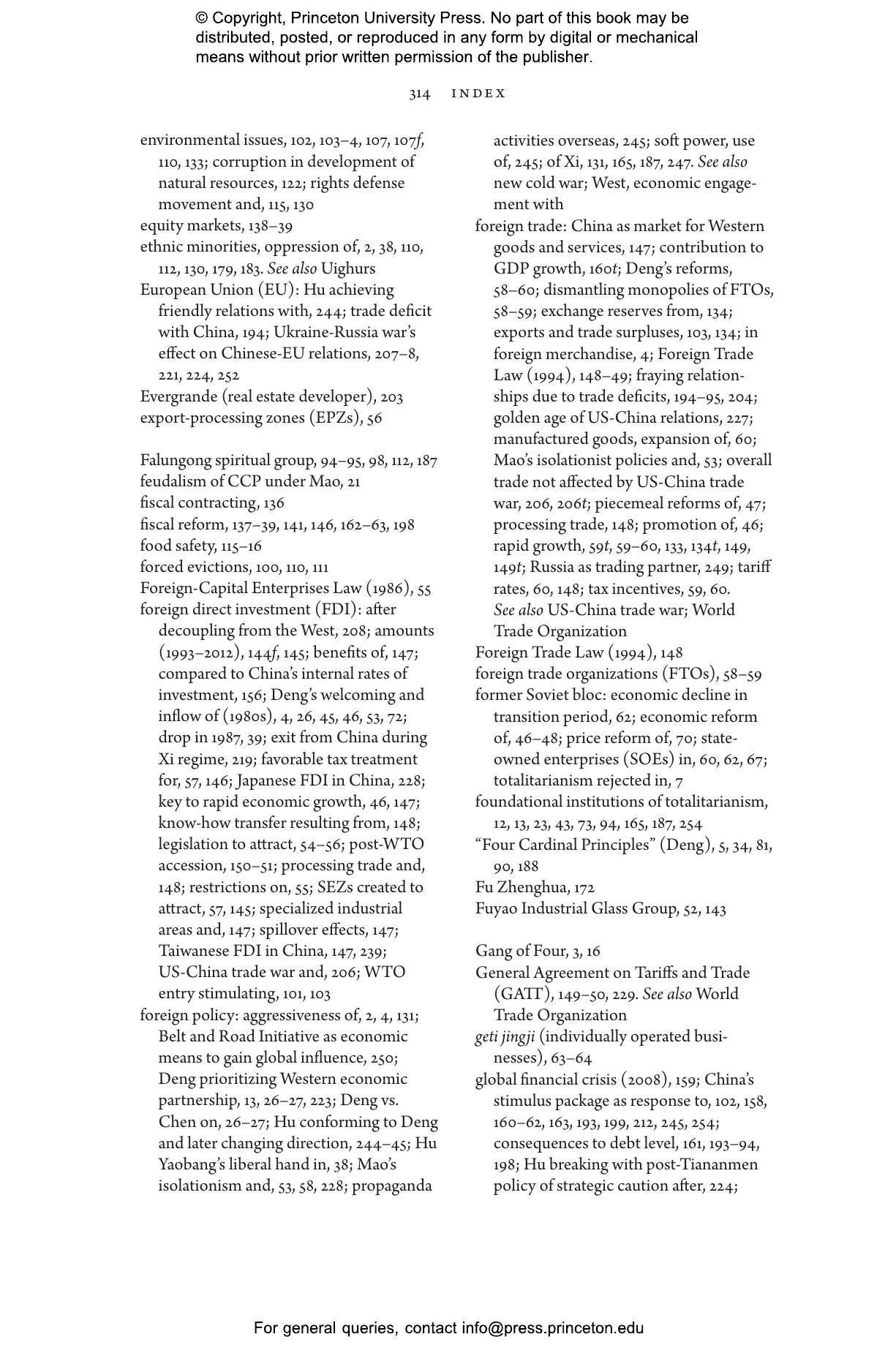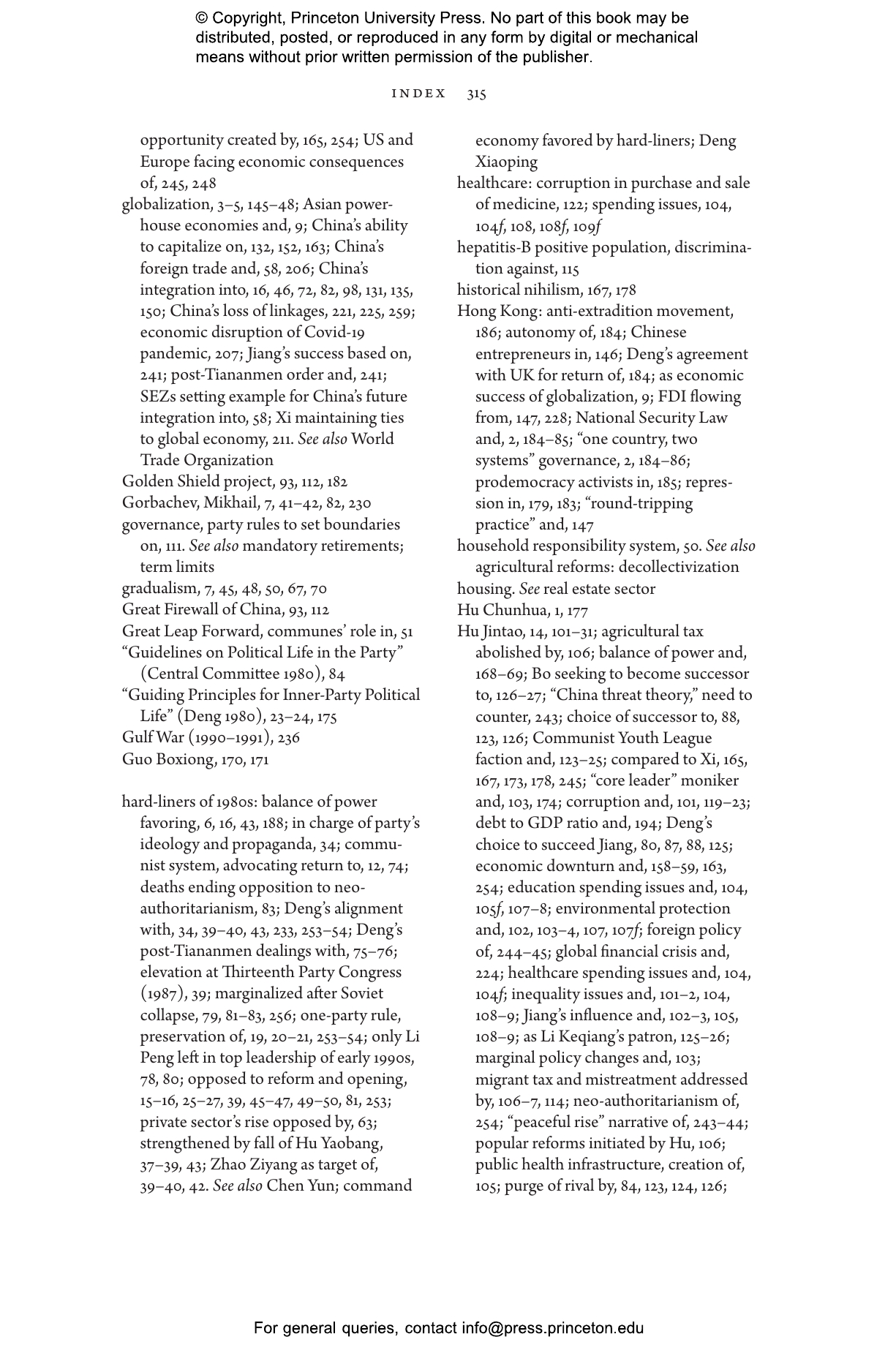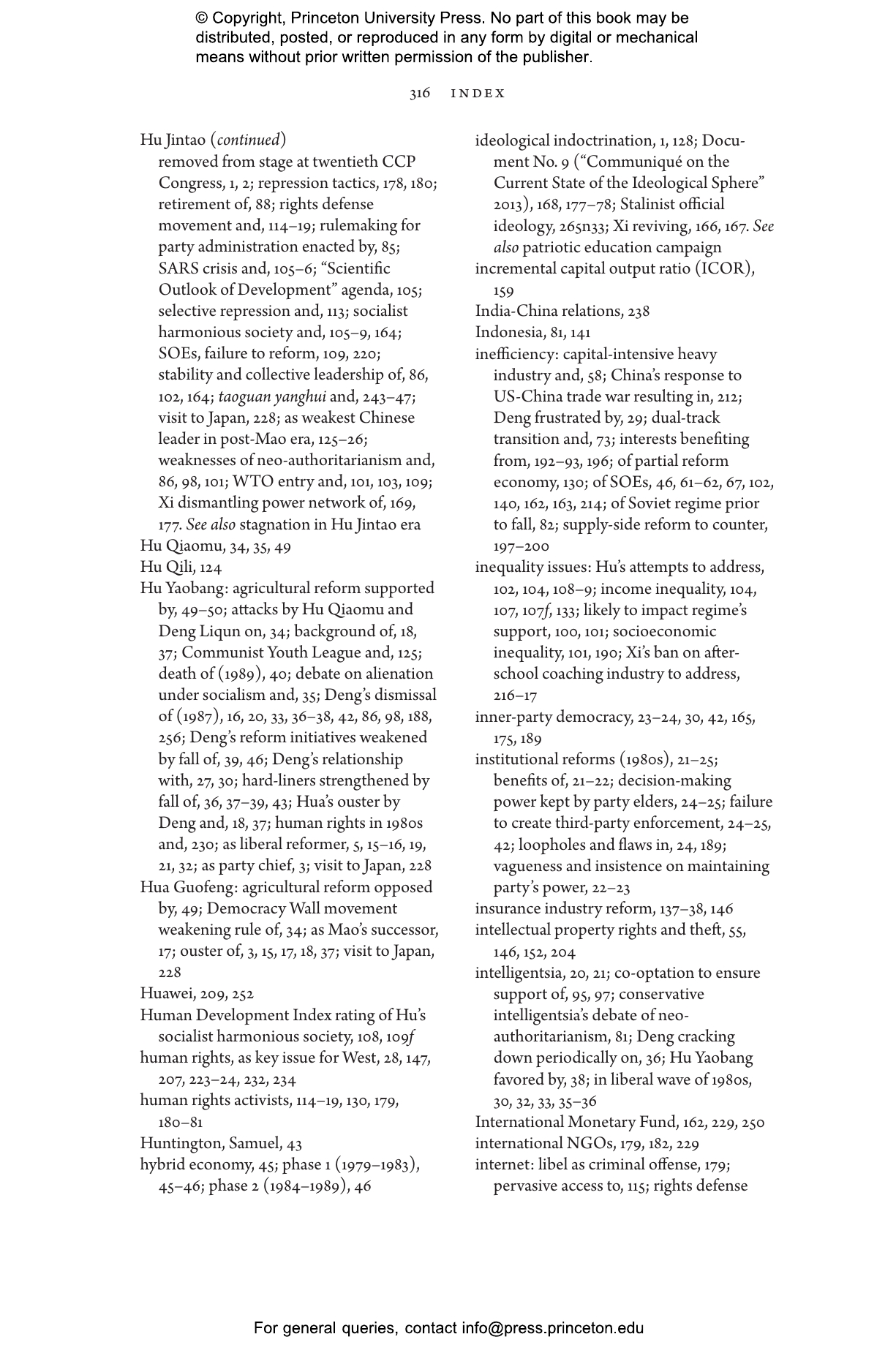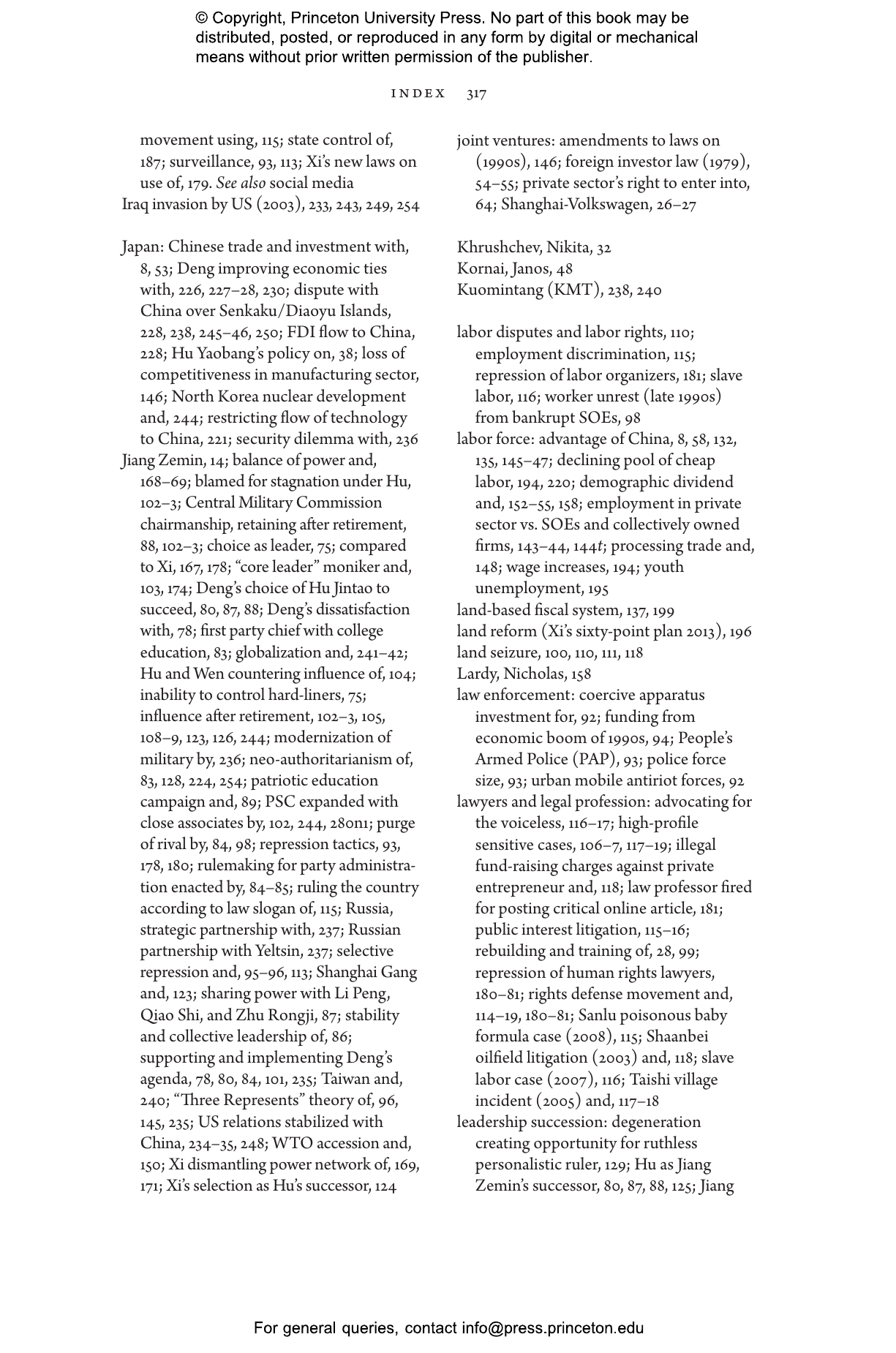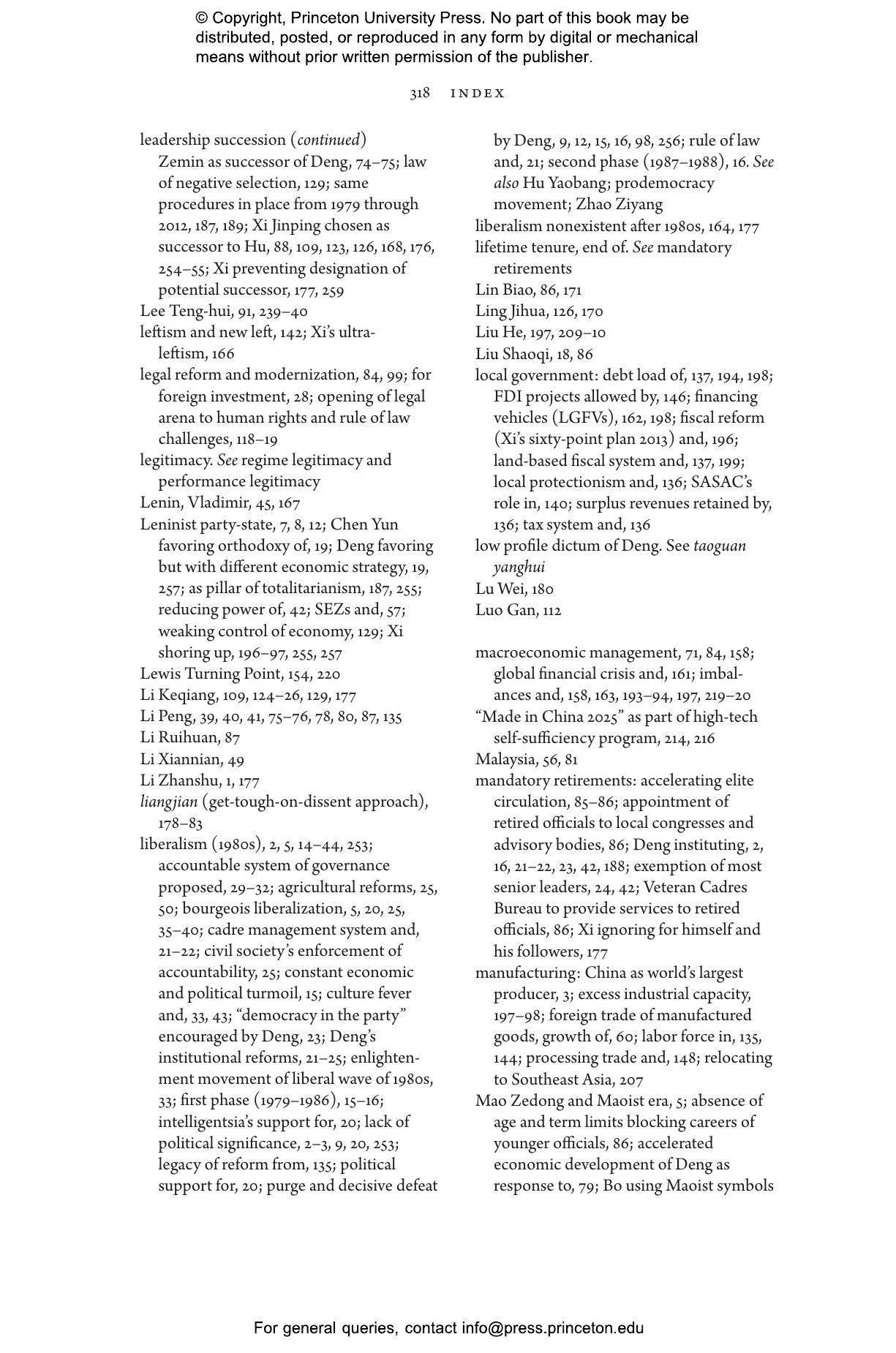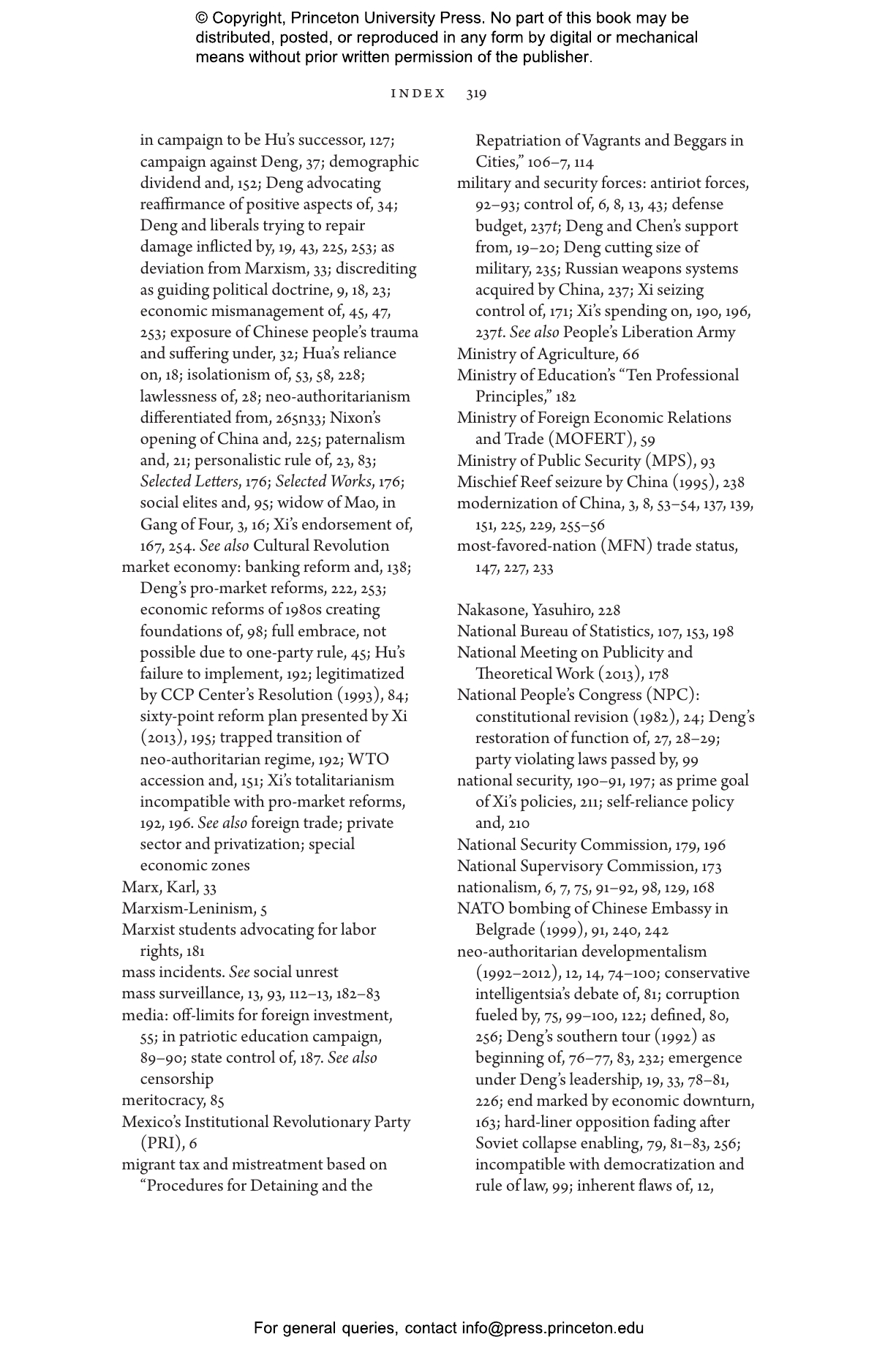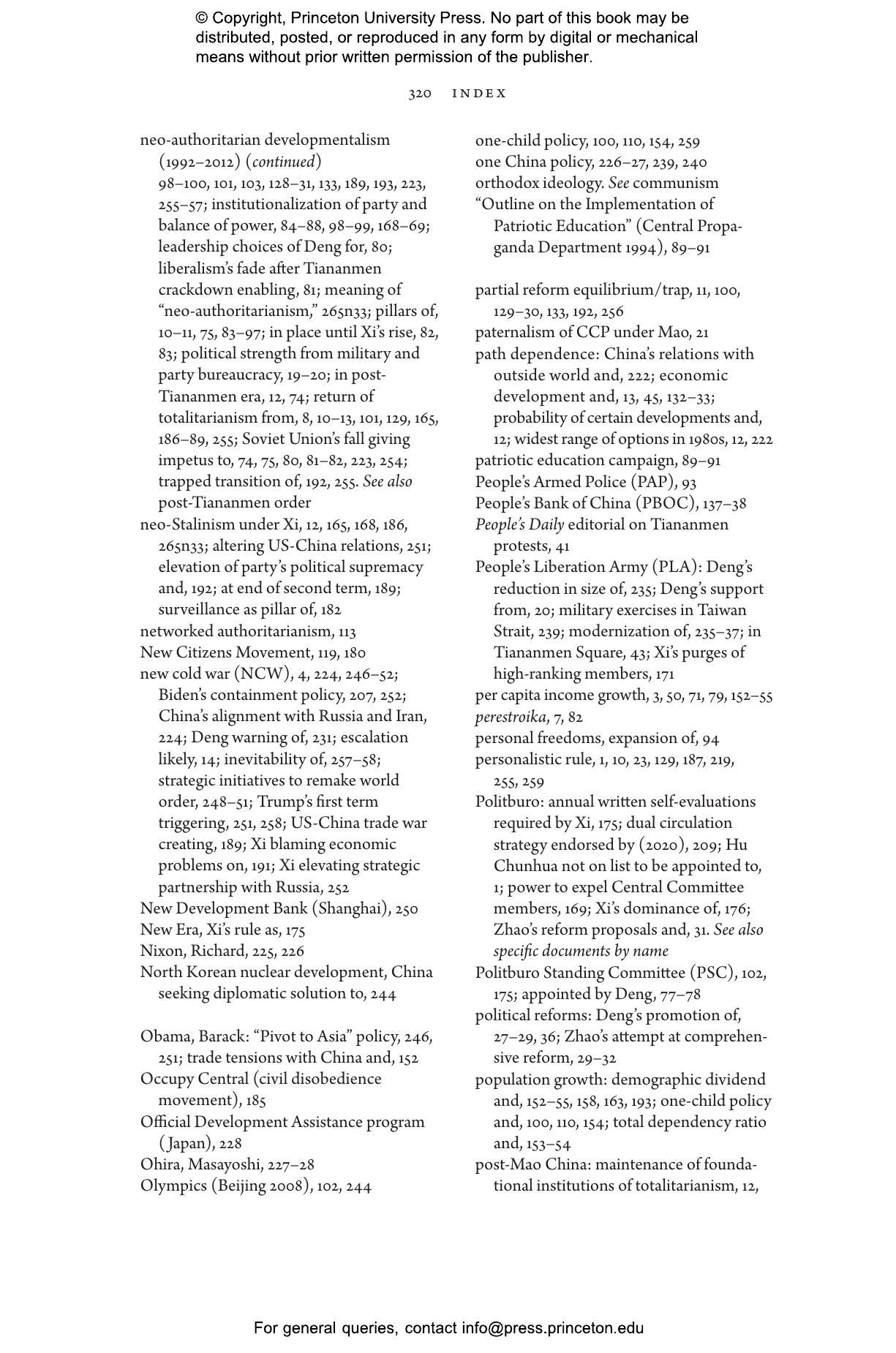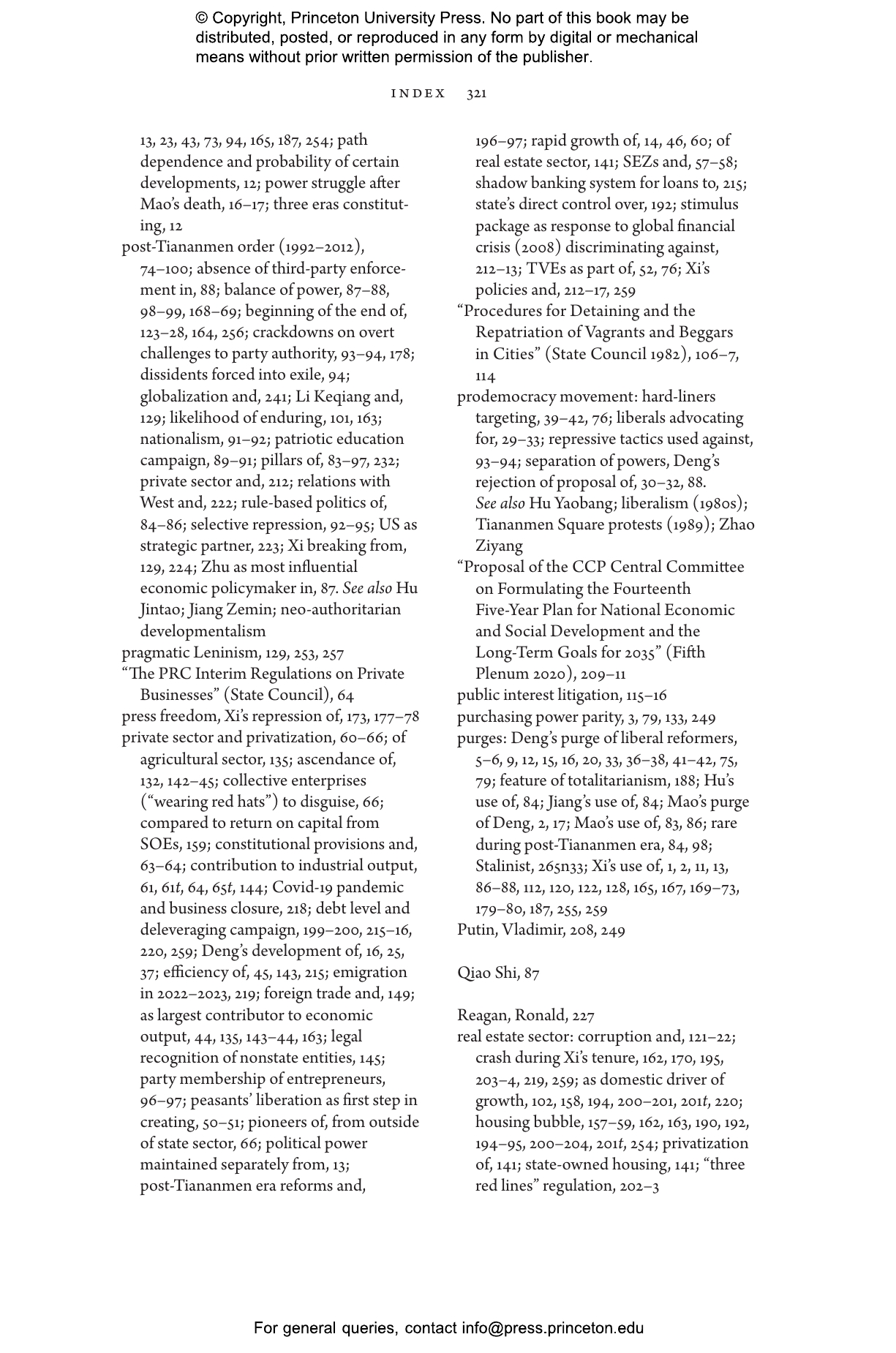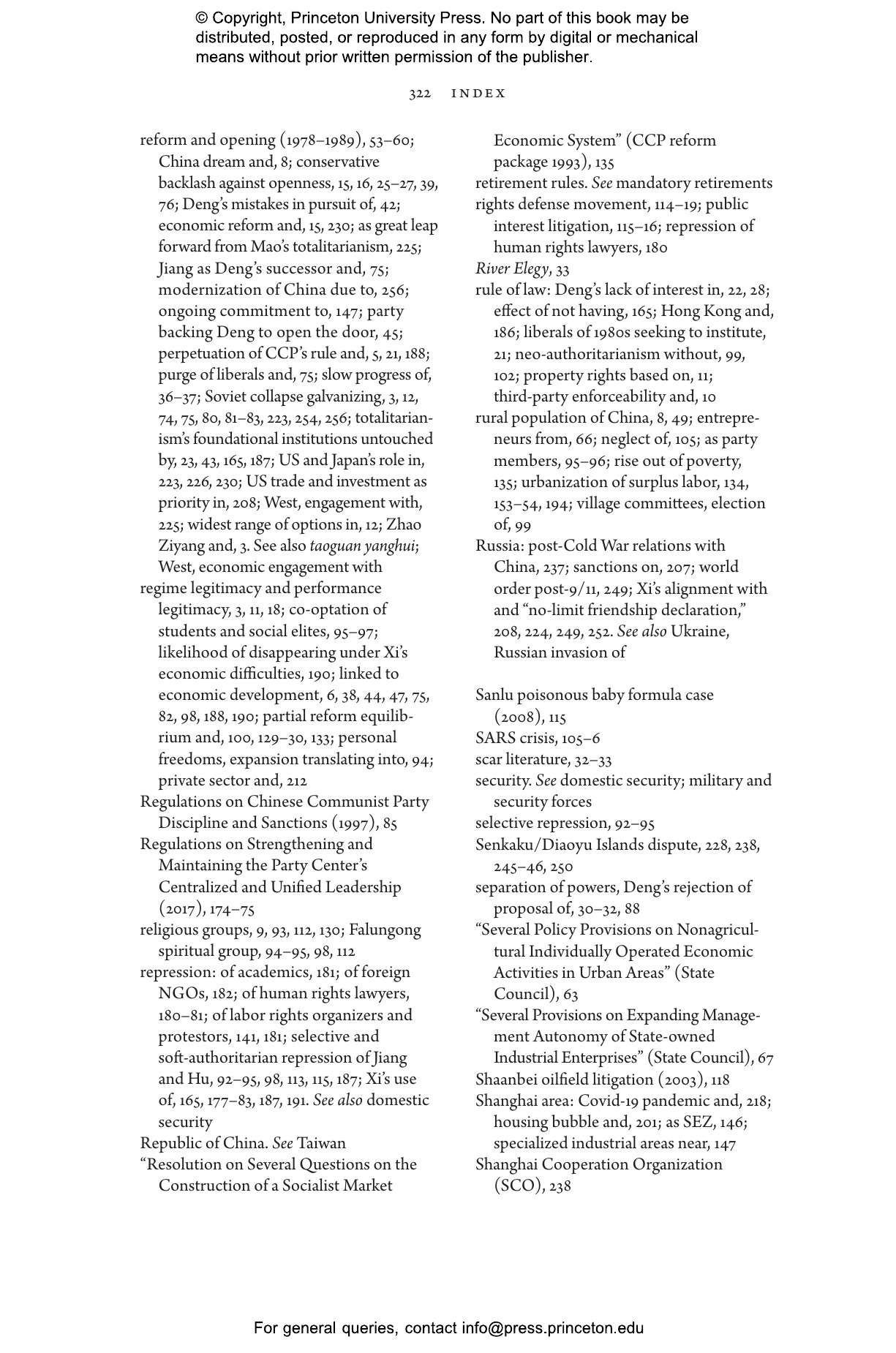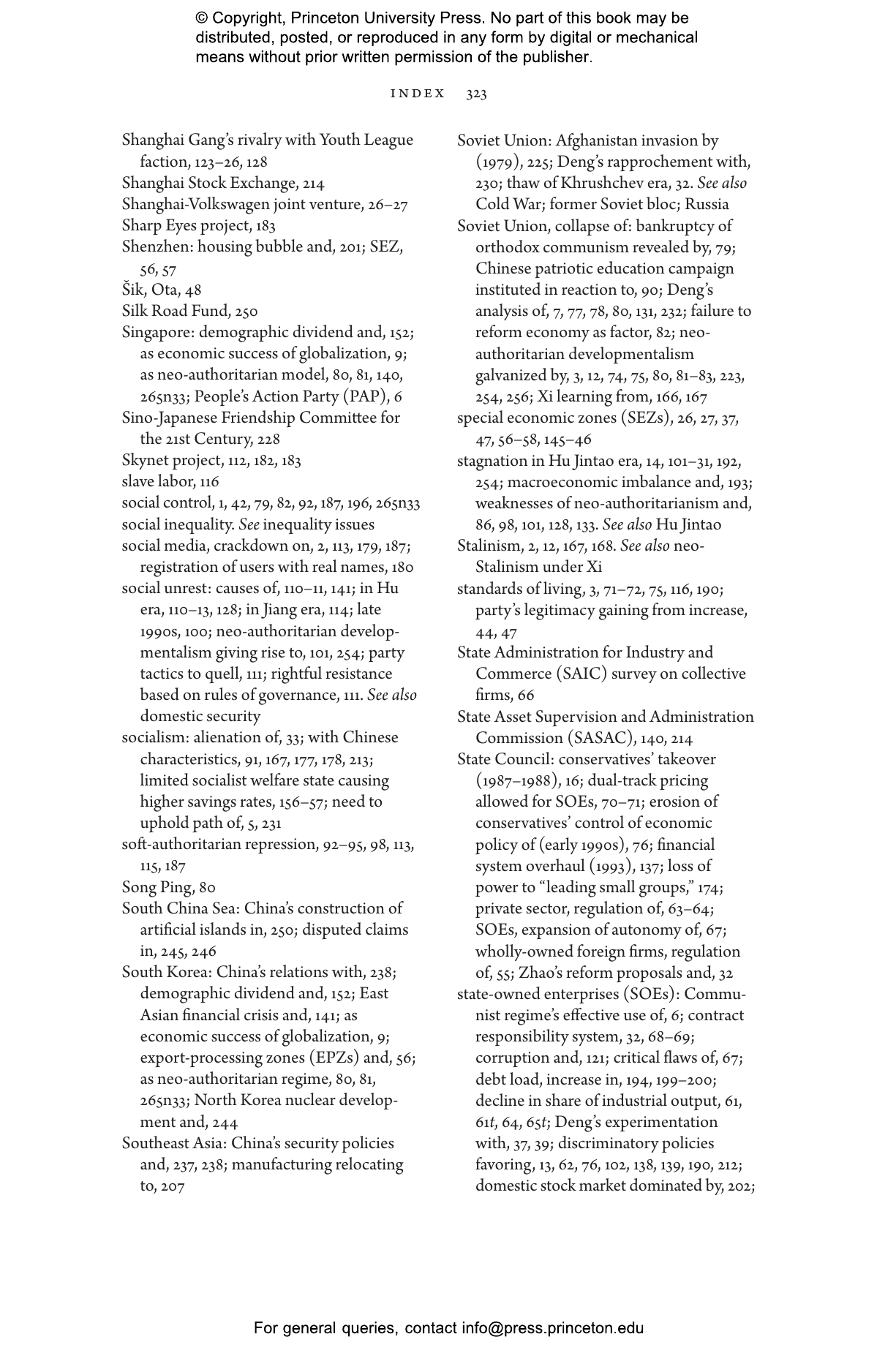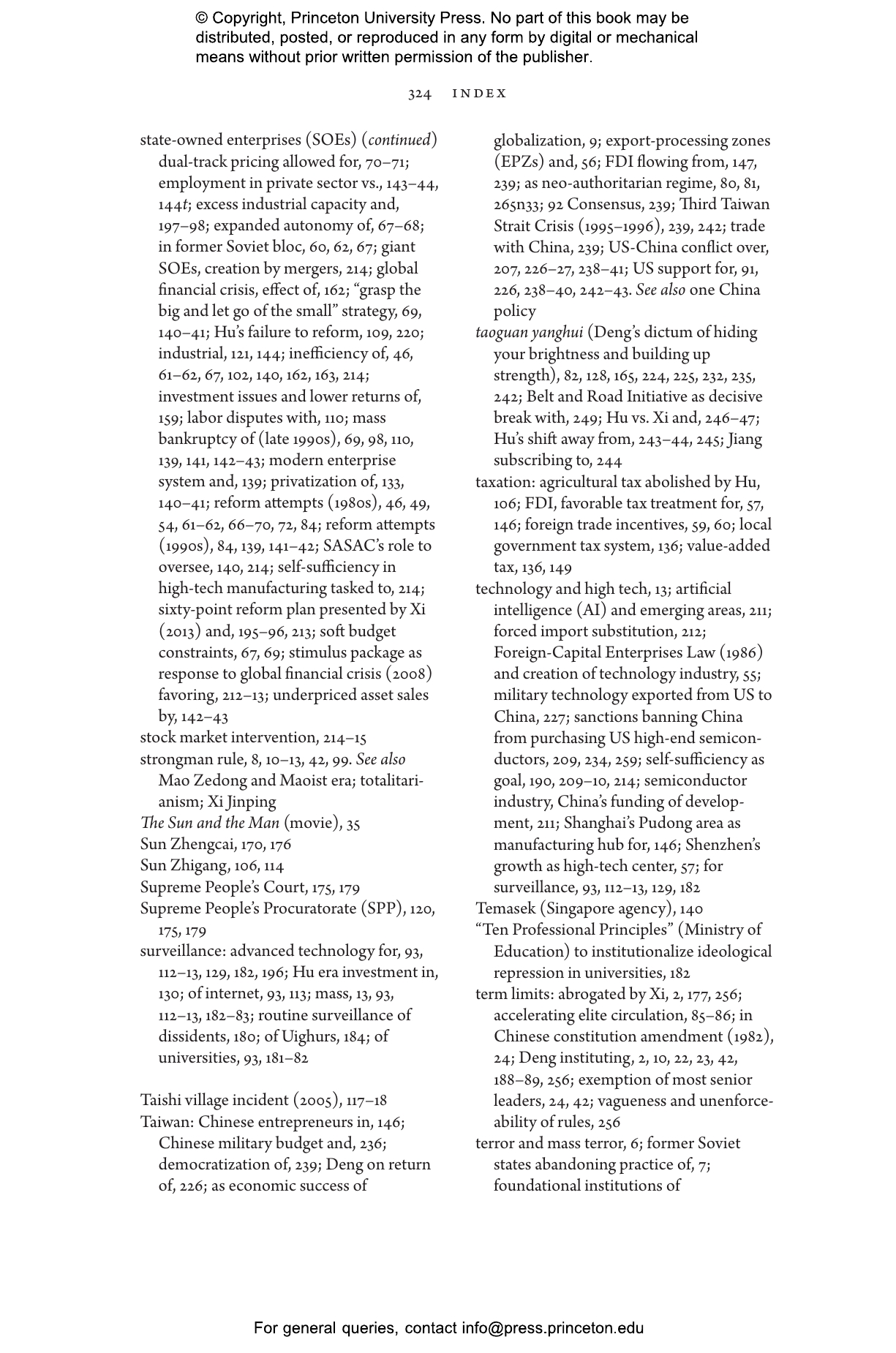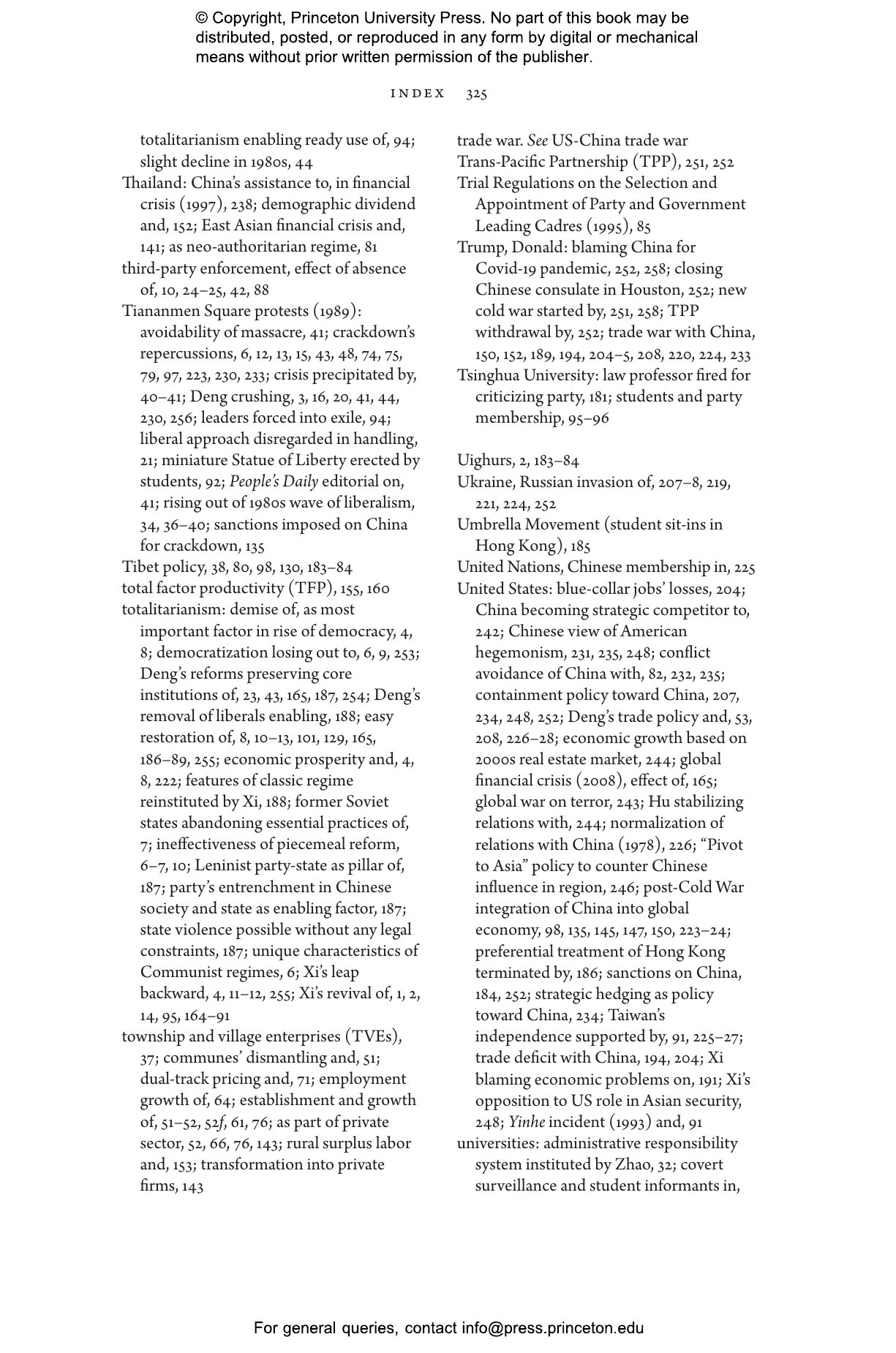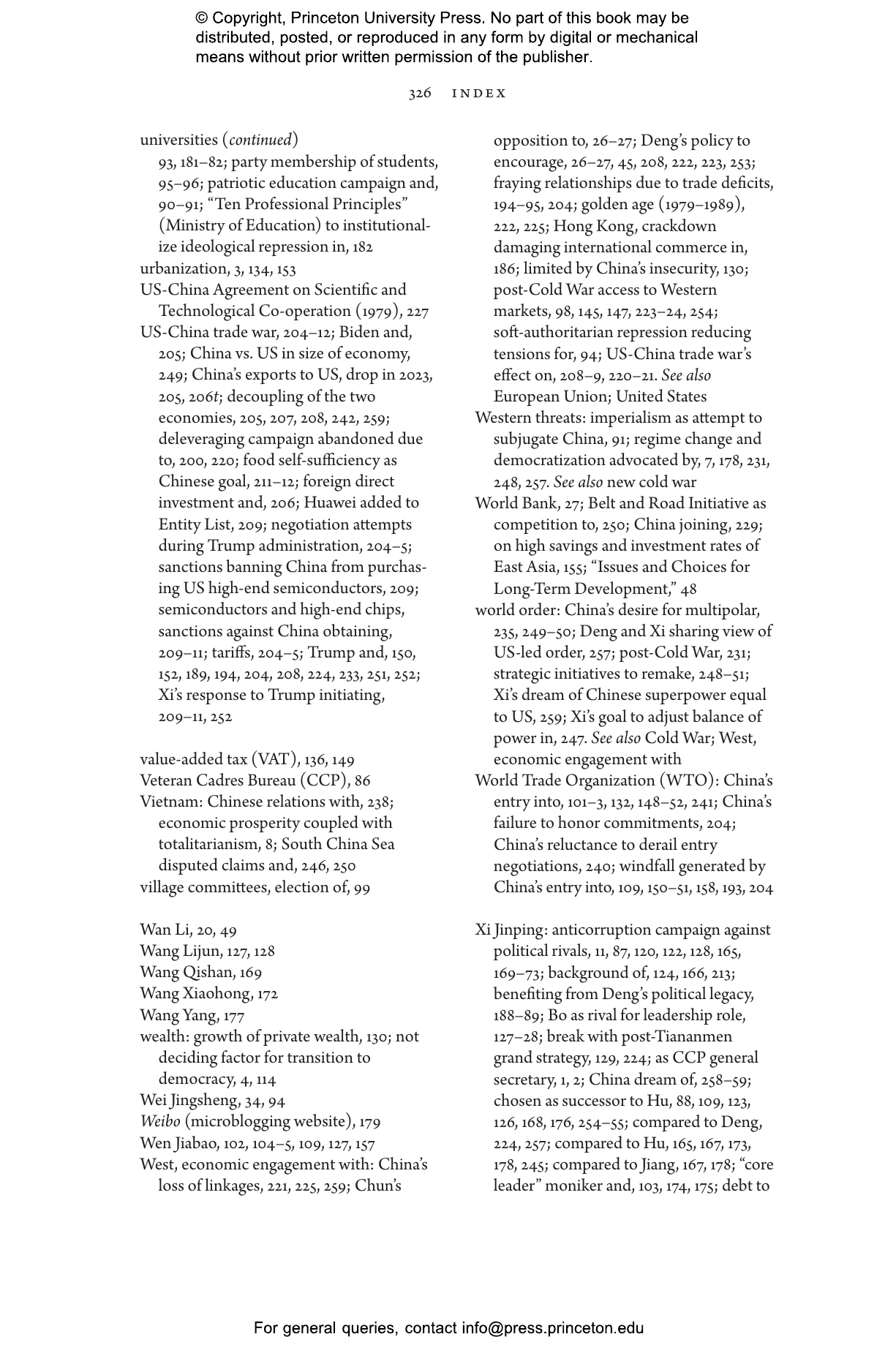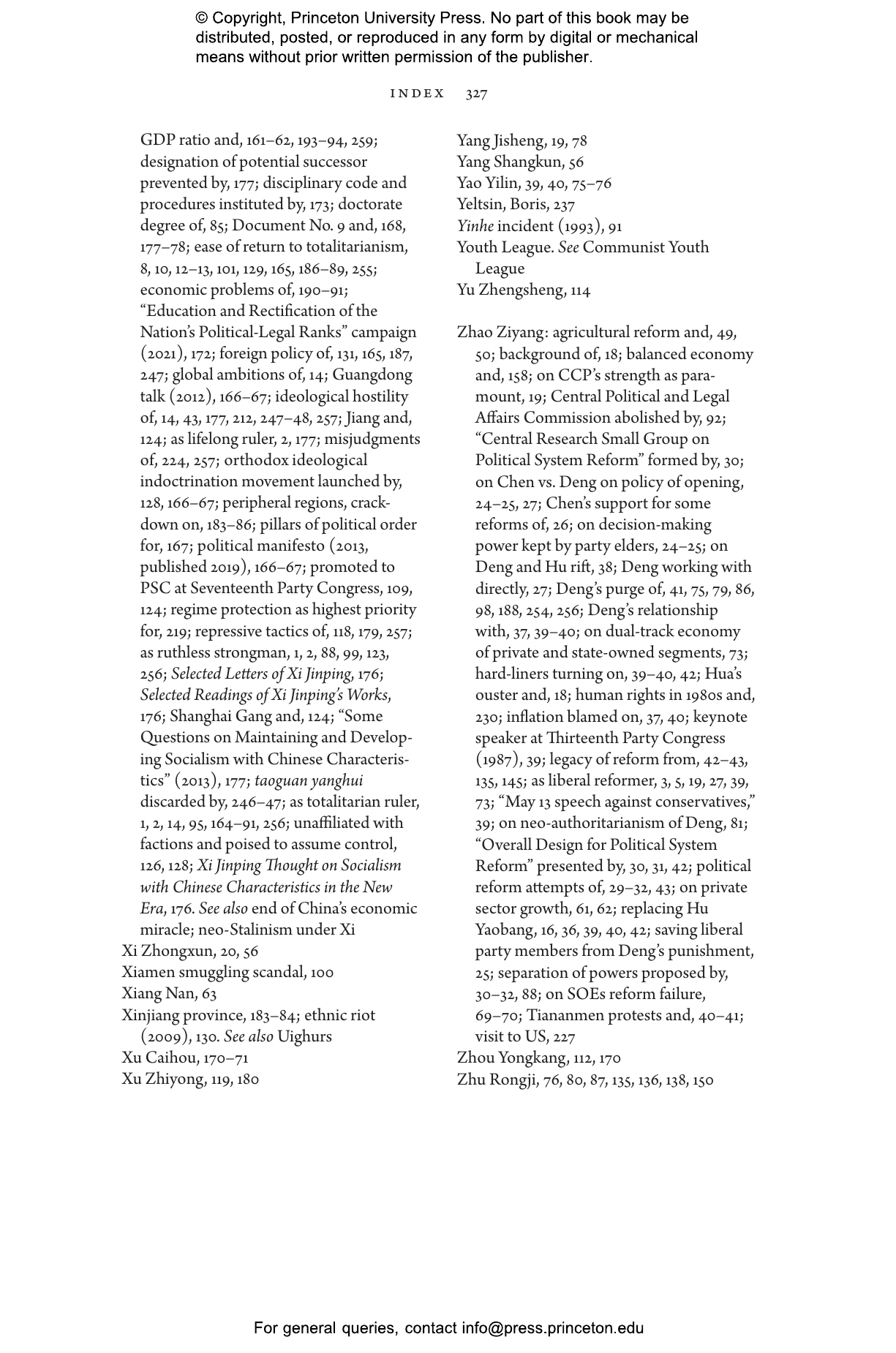When China embarked on its transformative journey of modernization in 1979, many believed the country’s turn toward capitalism would put its totalitarian past to rest and mark the birth of a democratic, open society. Instead, China reverted to a neo-totalitarian state, one backed by one of the fastest-growing, most formidable economies on earth. The Broken China Dream pulls back the curtain on the regime of strongman Xi Jinping, revealing why the reforms of the post-Mao era have been reversed on nearly every front—and why the world failed to see it coming.
Exposing the truth behind China’s economic ascendency after the Cultural Revolution, Minxin Pei shows how, following Mao’s death in 1976, Deng Xiaoping strategically deployed the tools of capitalism to preserve the Chinese Communist Party. Deng kept intact the institutional foundations of totalitarianism even as he unleashed private entrepreneurship and courted foreign investment, giving China’s one-party state control of a vast repressive apparatus and the most critical sectors of the economy. Only a fragile balance of power among dueling factions prevented the rise of a totalitarian leader in the two decades after the Tiananmen crackdown in 1989—but this temporary equilibrium collapsed.
Essential to understanding today’s China, this meticulously researched book is a sobering account of why the country’s reformers and institutions could not stop a shrewd and ruthless politician like Xi from resurrecting dormant totalitarian practices that, for the foreseeable future, have spelled the end of the dream of a free and prosperous China.
Minxin Pei is the author of several acclaimed books on contemporary China, including The Sentinel State: Surveillance and the Survival of Dictatorship in China, China’s Crony Capitalism: The Dynamics of Regime Decay, and China’s Trapped Transition: The Limits of Developmental Autocracy. He is the Tom and Margot Pritzker ’72 Professor of Government and a George R. Roberts Fellow at Claremont McKenna College.
32441
“In this outstanding book, today’s leading analyst of modern China reveals why it has been so easy for Xi Jinping to reinstate a totalitarian system. Minxin Pei shows how an unreformed party-state stood behind the economic miracle and how, in the absence of constraining legal or political institutions, Xi Jinping has found it easy to reimpose rule by fear. Anybody interested in modern China should read this book.”—Martin Wolf, chief economics commentator at the Financial Times
“Minxin Pei remains one of the most prescient analysts of modern China’s economic and political development. With The Broken China Dream, he once again offers an indispensable guide to China’s rise—and to the self-imposed weaknesses and contradictions of the path Xi Jinping has chosen.”—James Fallows, author of China Airborne
“There are few more prescient China analysts than Minxin Pei. In this book, he provides a clear and lively analysis of how and why China failed to leave authoritarianism behind and instead ended up with a strongman leader intent on challenging the international order. The Broken China Dream offers an excellent primer on the birth and death of China's reform era while sharing unique insights into the future of this rising superpower.”—Ian Johnson, author of Sparks: China’s Underground Historians and Their Battle for the Future and founder of the China Unofficial Archives
“Minxin Pei has authored yet another major statement about China’s post-Mao trajectory. His provocative and lucid analysis of China’s political evolution after Tiananmen concludes with a fascinating account of the rise of Xi Jinping. It will focus discussions of China’s recent past and likely futures for some years to come.”—Andrew G. Walder, Stanford University, author of China Under Mao


